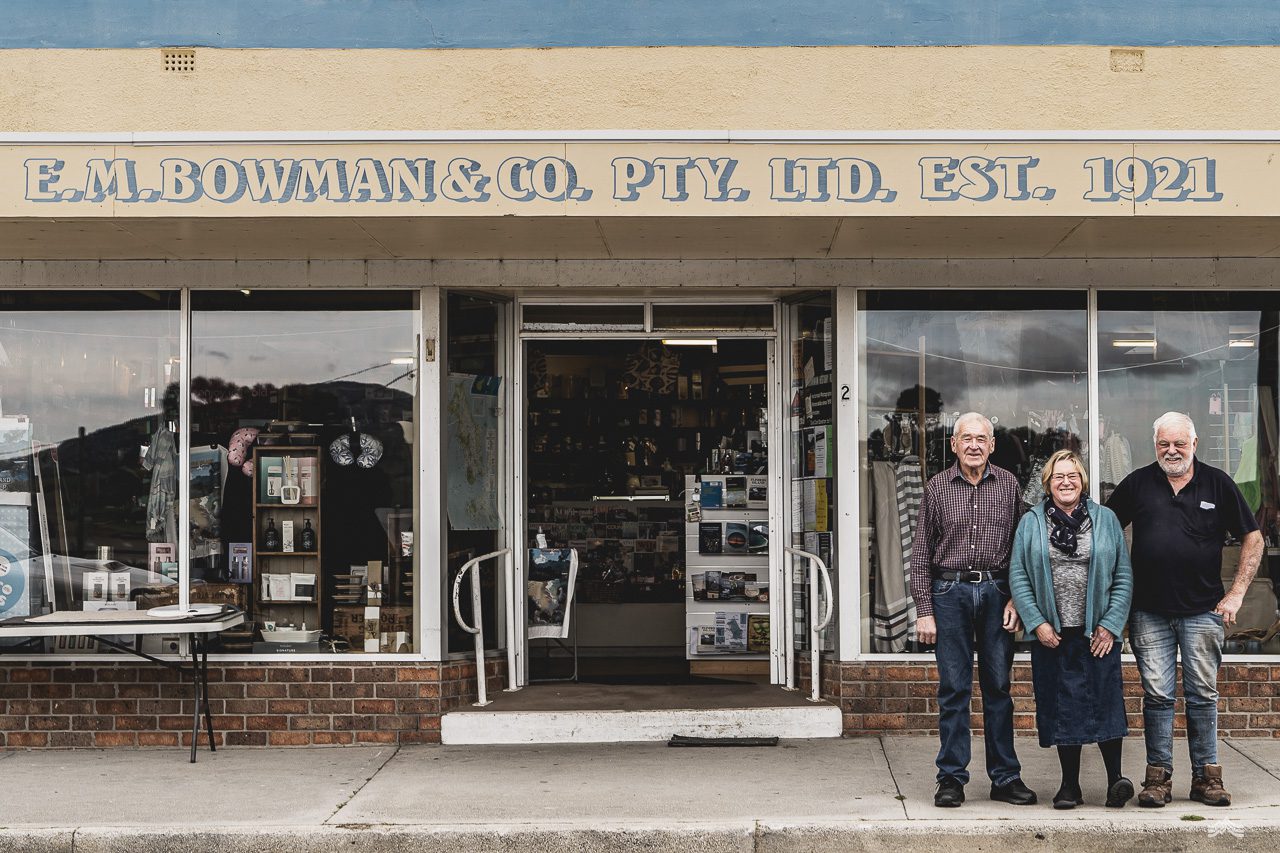Bowman’s General Store
An island storekeeper’s tale
Daniel Thomas Bowman undoubtedly had an adventurous streak. As a young man he served four years as a book keeper on a remote rubber plantation in British New Guinea. Upon his return home to Melbourne in 1912, a visit to the Royal Melbourne Show saw him stumble across a stand promoting land acquisition on Flinders Island.
Arriving just prior to the winter of 1913, Daniel selected property on the eastern side of the island. Here, the spectacular granitic mountains that make up the very backbone of Flinders offered some shelter from the prevailing westerly winds. The site, close to coastal lagoons teaming with life, must have seemed a fitting place to set up camp. Enthusiasm prevailed over reality at this point and the lure of opportunity fueled his progress.
Daniel’s diary is quick to recount tales of backbreaking hard work. He erected a simple hut and cleared thick tea tree for fence lines. Subsistence came in the form of a few cattle and some hardy vegetables. In those early days he diligently recorded the ‘endless slog, damper and lack of comforts’ – perhaps the impetus to enlist for World War 1.
‘Cutting bracken ferns all day north west of house. Fine tho’ threatening rain.’
‘Commenced to blow and rain from the north last night… still raining now. Wind blew the fowl house to pieces. Bob’s rooster died from exposure.’
‘Commenced to cut 3 acres of white oats. Scythe was no good as last heavy rain had beaten crop down. Had to cut fern with hook. A slow game. 7 hours. Fine, west wind.’
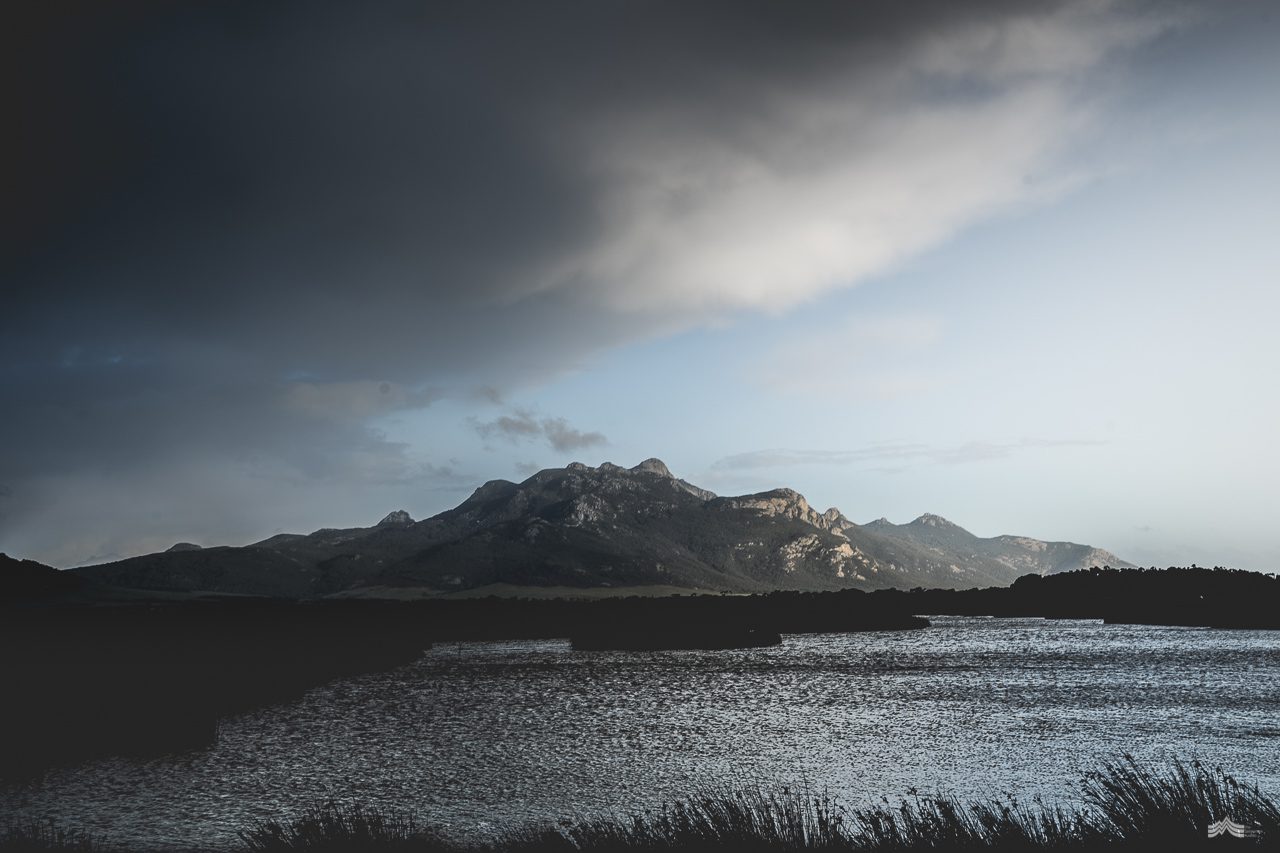

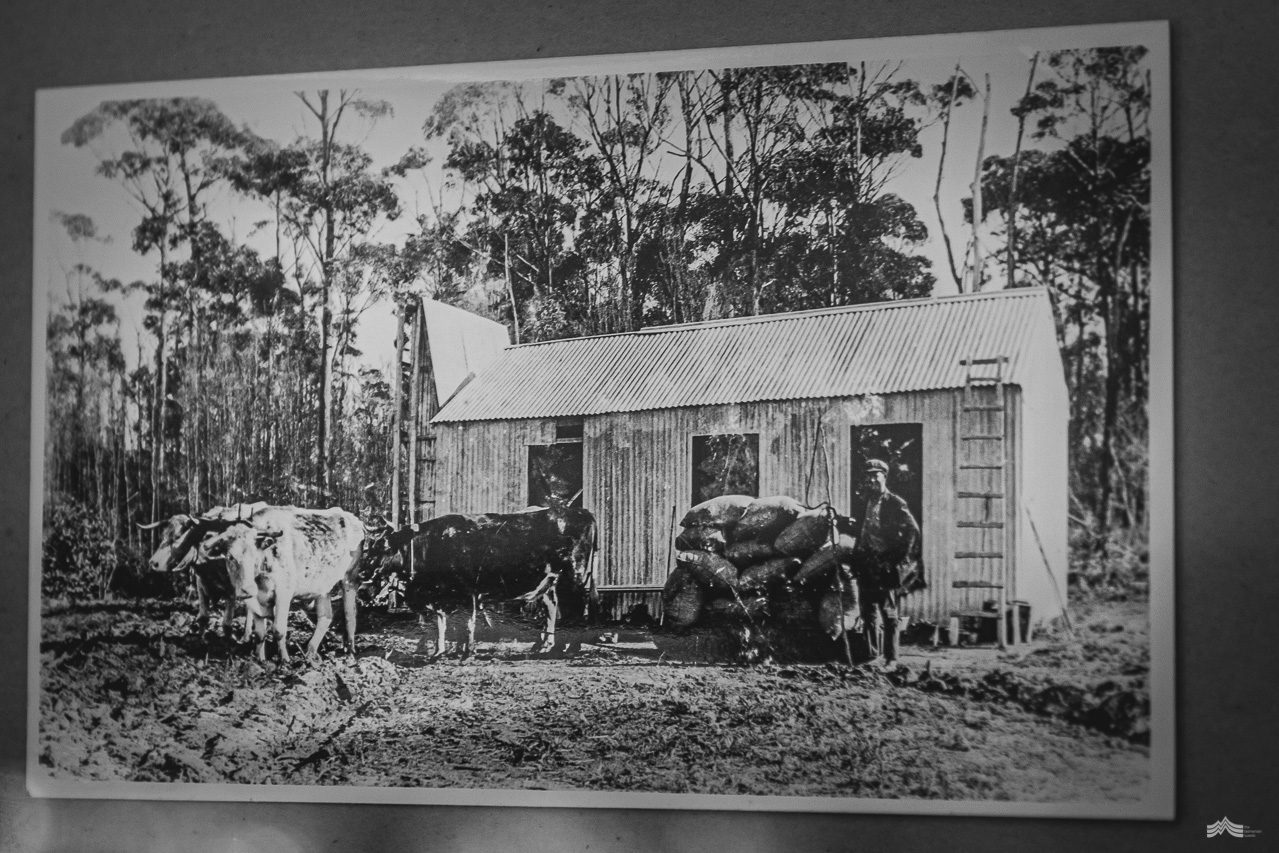
Letters to Daniel’s betrothed – Elizabeth ‘Maud’ Smith – who remained back in Victoria, trace the story of the three years he served in France. They hide the atrocities of war, and even reveal how Daniel asked Maud to forget him. He doubted his own return. Indeed, reality came very close when he was gassed and lost the use of one lung.
In 1919, Daniel Bowman returned to his island home at the bottom of the world. No doubt he brought with him a new outlook on life. He also brought Maud, the pair having married just one month after his arrival back to Victoria. This courageous young woman packed up all she knew to head off to the unknown wilds of Bass Strait with a husband in the process of rebuilding his health.
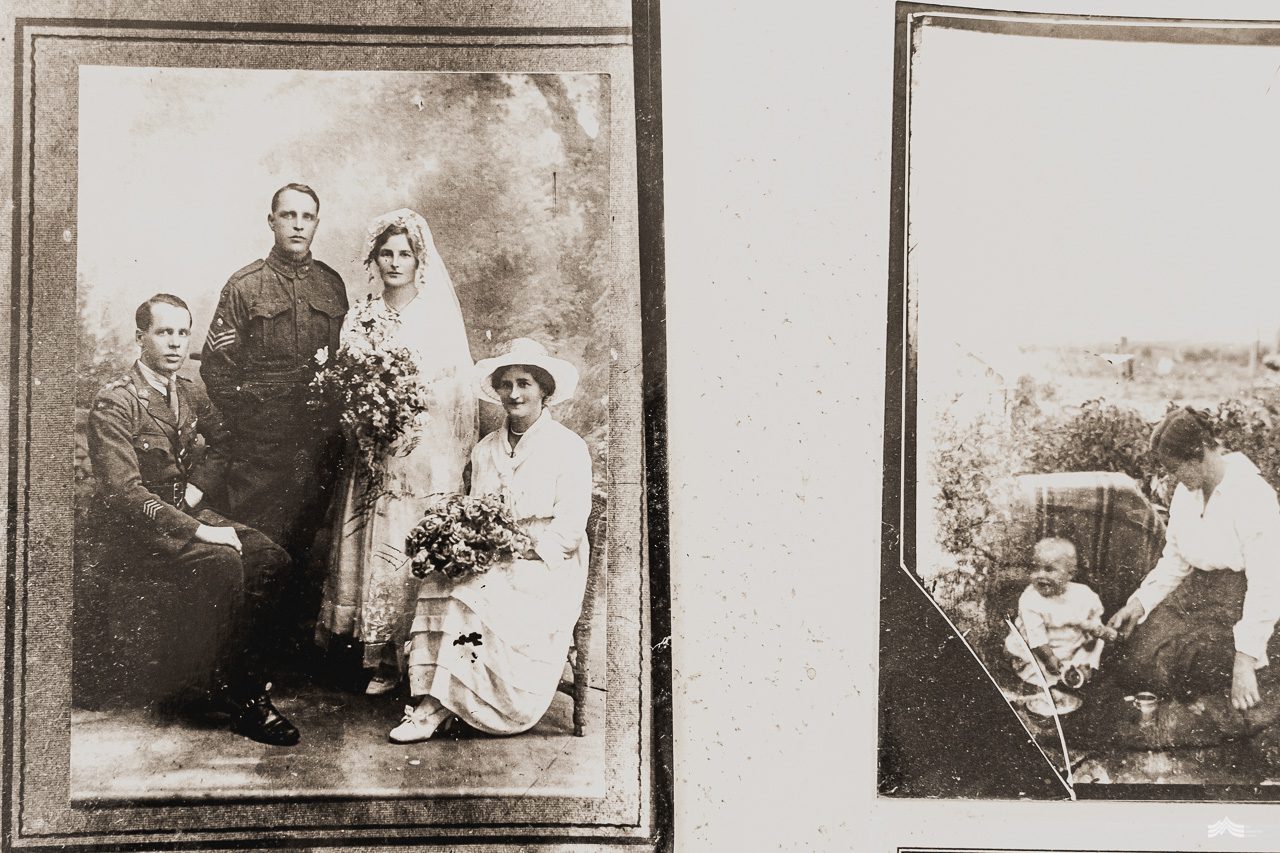
Daniel found work as the island’s Council Clerk to supplement their income, while Maud turned her hand to making the best of life on a remote farm. Going into labour in August 1920, Maud was bundled off by horse and cart to the local midwife, a relentless journey some 20 kilometres overland to the other side of the island. She retuned shortly after, triumphant in baby Stanley’s arrival.
There was now a family to support. In 1921, Maud took Stanley back to Victoria to visit family whilst Daniel set about building a four room home with a shop and post office in Whitemark. At the time, this remote west coast settlement offered little aside from a wharf, the Council Chambers, the Church of England and the Interstate Hotel. Unbeknownst to Daniel and Maud, their move to the corner of Patrick and Roberts Streets was to become a definitive part of island history. Bowman’s General Store was born. The store initially traded under EM Bowman as Daniel felt that his role as Council Clerk precluded him from using his own name.
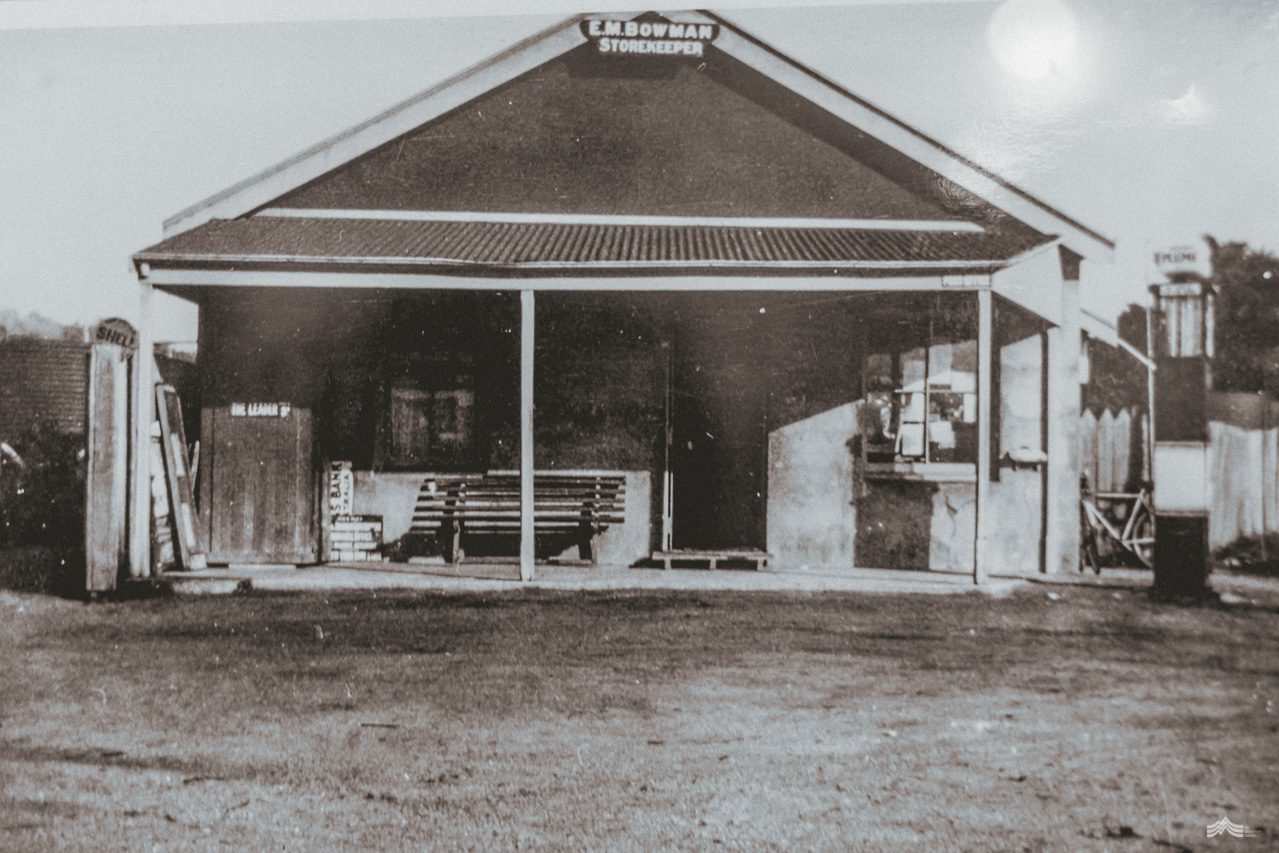
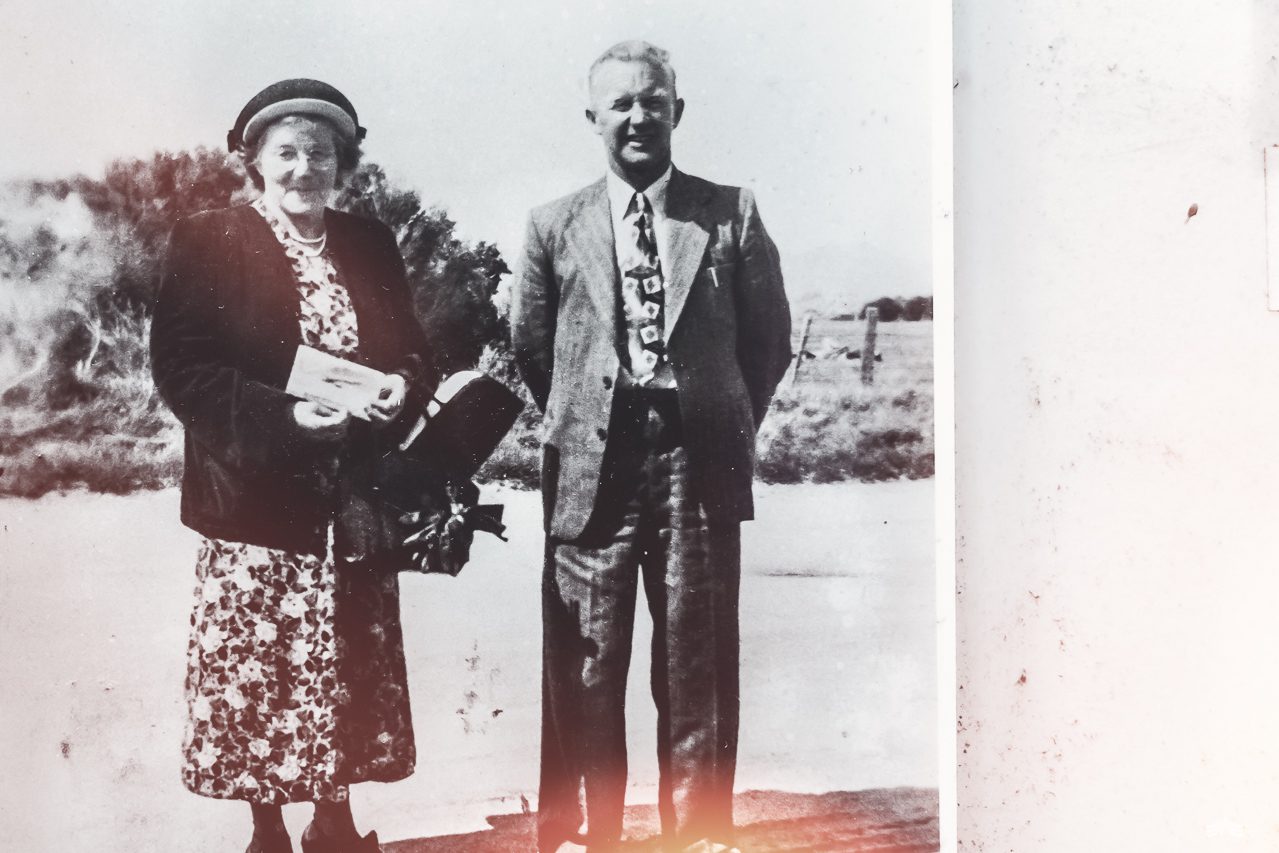
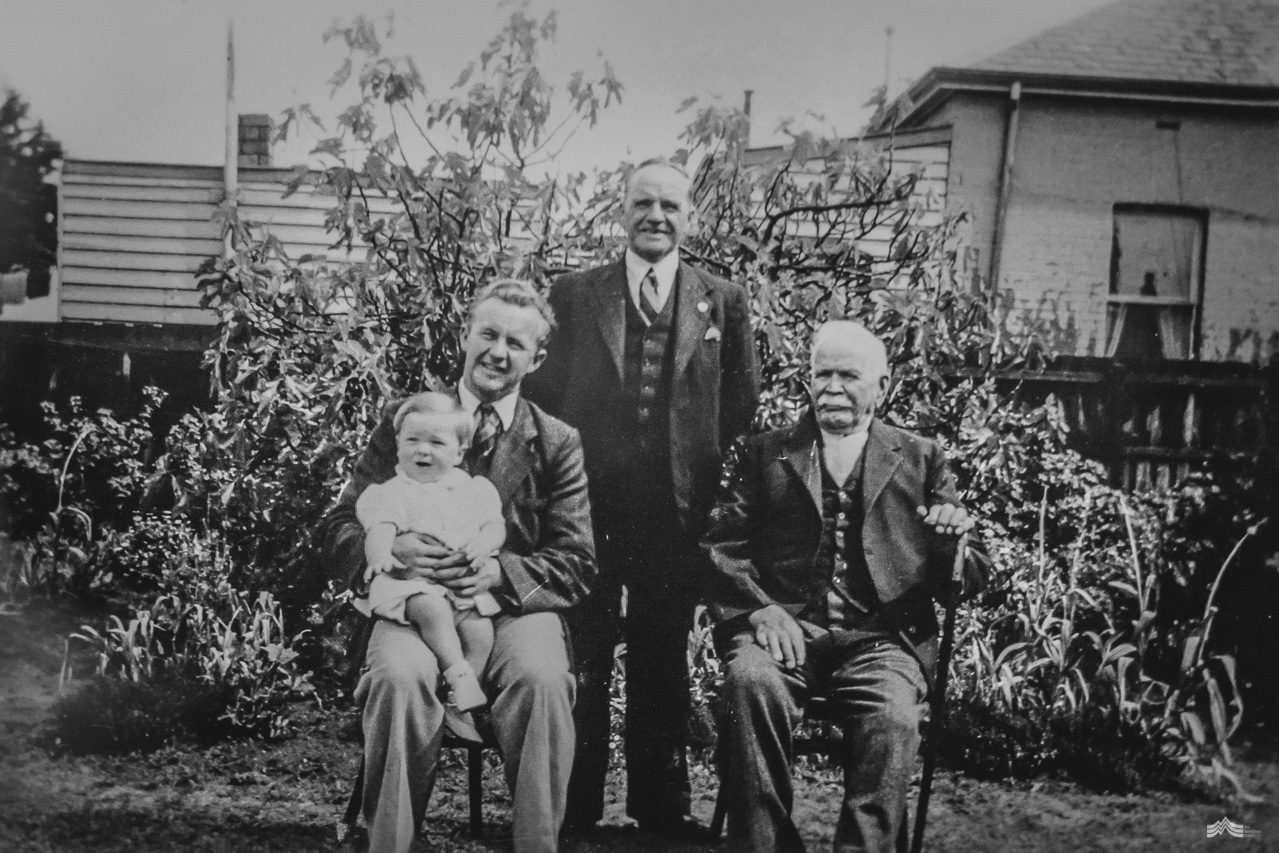
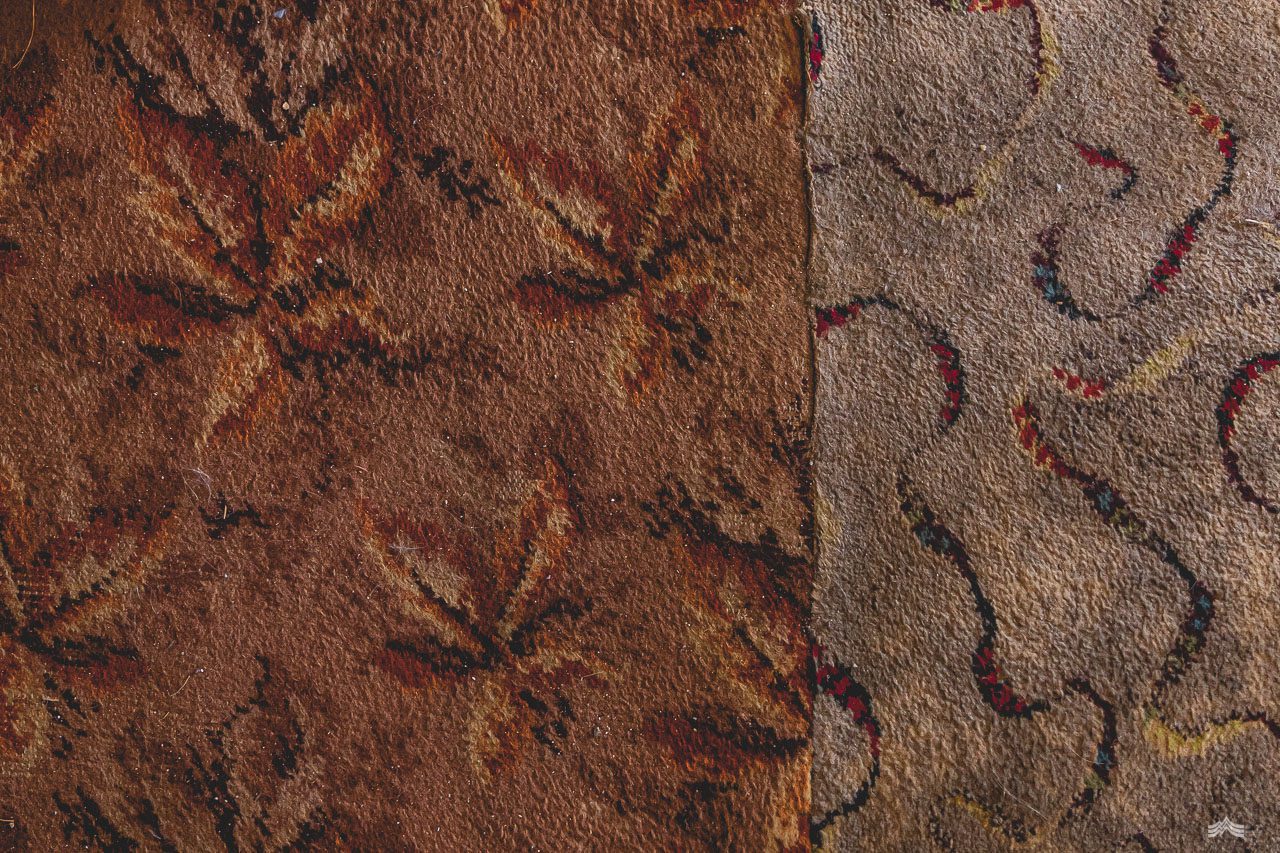
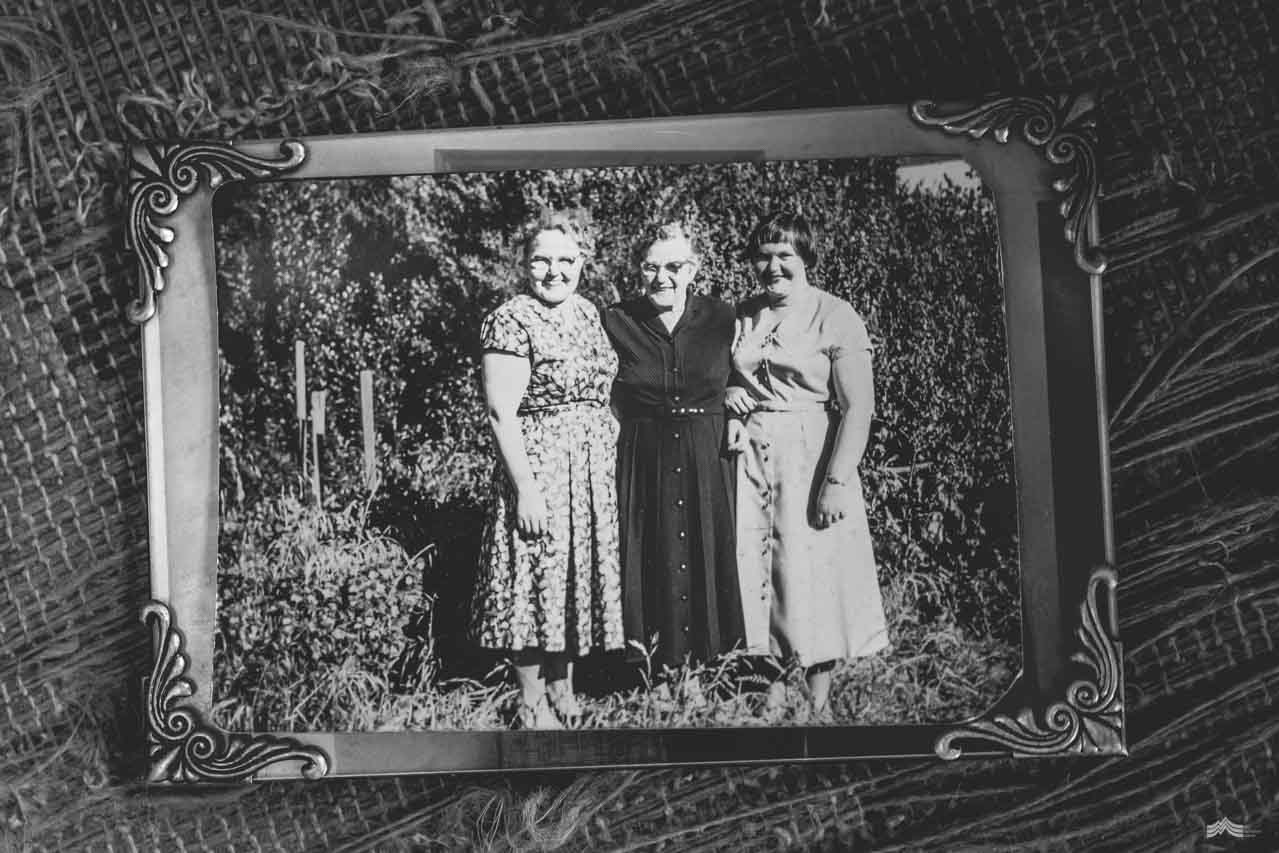
By 1931, Stan had two sisters, Ruth and Una. During their high school years they were each sent off the island to pursue their education before returning to work in the store. Bowman’s has always been a genuine family affair.
Supplies from Bowman’s have long been crucial to this pioneering community. In the early days times were tough and the store stocked the basics – boots, nails, grocery staples and essential homewares. As the island developed, its fascinating history can be traced directly through the goods listed in the store’s records. Leaf through the original ledger and the popular purchases of the day are revealed, along with their values.
In 1942 Stan married Elvie Dawson at St Mary’s on the Tasmanian mainland. Elvie brought with her an excellent shop pedigree as her family ran their own general business in the small east coast community. She adapted quickly to island life and fitted in easily with the Bowman family – somewhat fortunately as they all lived together at the rear of the store for the following six years. The young couple, and soon to be growing brood of children, added another two rooms to the dwelling. It was multilayered family living at its best.
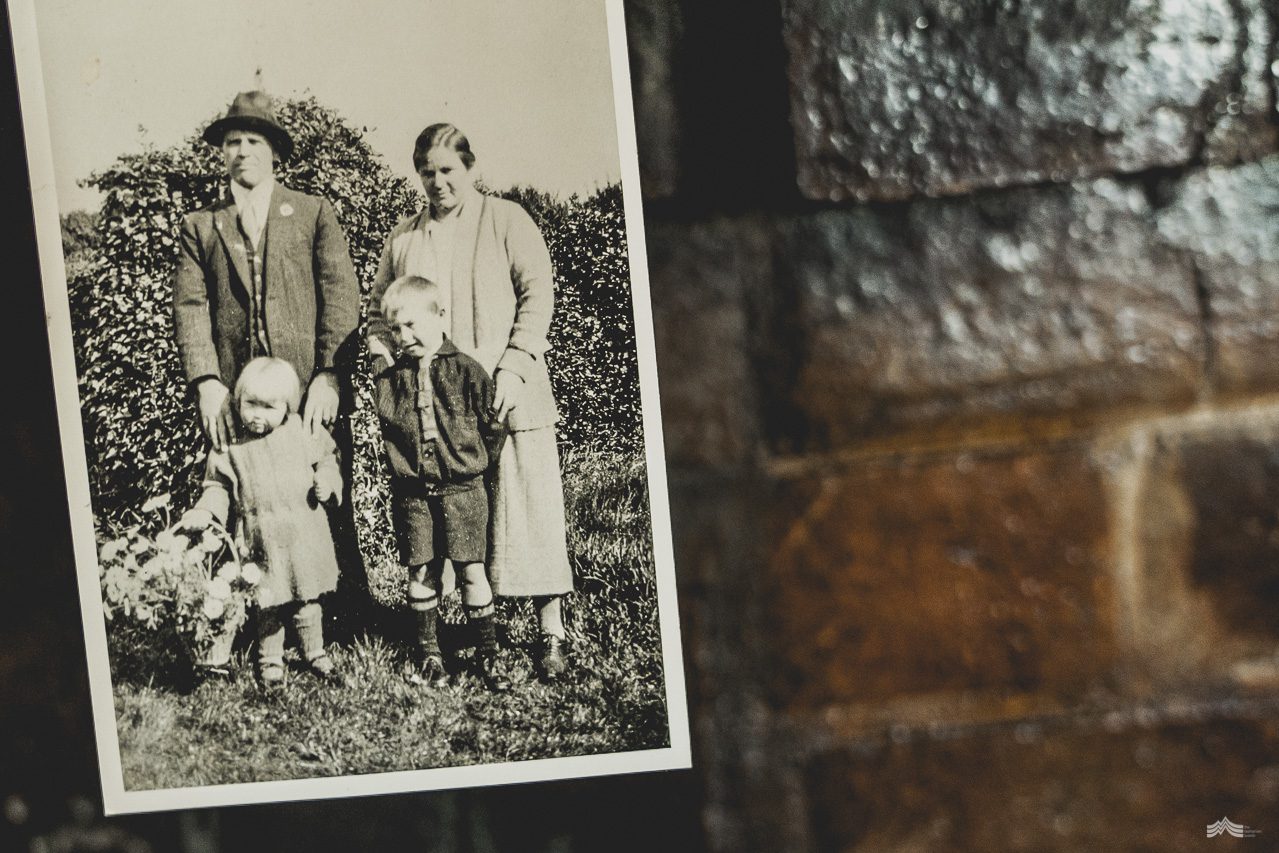
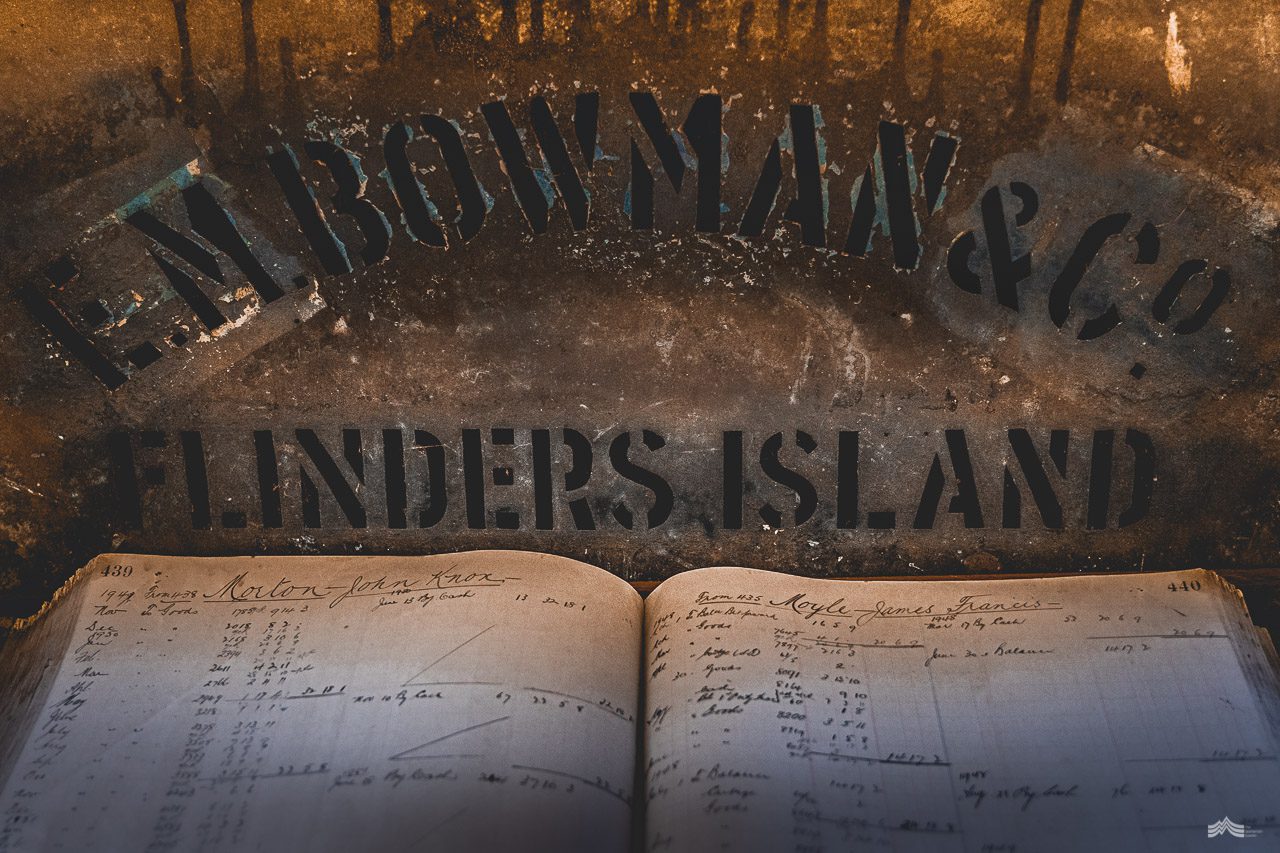
Interestingly, Daniel often slept in a canvas tent at the rear of the property – a habit said to assist his breathing. He’d remark that the fresh Flinders air helped his ailing lungs and would help prolong his life. Wicked winds whip their way across the Strait, bringing cool salty goodness cleansed from their journey across thousands of kilometres of wild expanse. Daniel was also known to take a tablespoon of mutton bird oil each day – a tonic that slowly leached out of his body leaving stains upon his flannels.
Upon his retirement from the council in 1952, Daniel voyaged to England with an old friend. He visited the battlefields and cemeteries in France, no doubt wrestling with demons from decades past. In his absence, the family grasped the opportunity to undertake major upgrades back in Whitemark. Daniel was never one for change, hence it was the perfect time to build not only a new storeroom but demolish the original shop. Bowman’s General Store as it stands today rose from the ground.
Daniel’s death in the mid-1950s coincided with the development of the Soldier Settlement Scheme. The program saw the island welcome a significant population rise and with that came increased income. Investment in the expanded store proved timely as the influx of young couples in the community brought demands for all manner of household goods and clothing.
Today, Lois Ireland is the matriarch of the Bowman family. The only daughter of Stan and Elvie, most of Lois’s early memories are defined by the business that’s shaped her life. “I still recall being put to sleep in a cot out in the back room,” she smiles. “It sat under a dark window and I remember finding that very scary. Mum also used to pop me in a tea chest out in the shop when I was very young too. Apparently I smiled at all the men and cried when the women approached.”

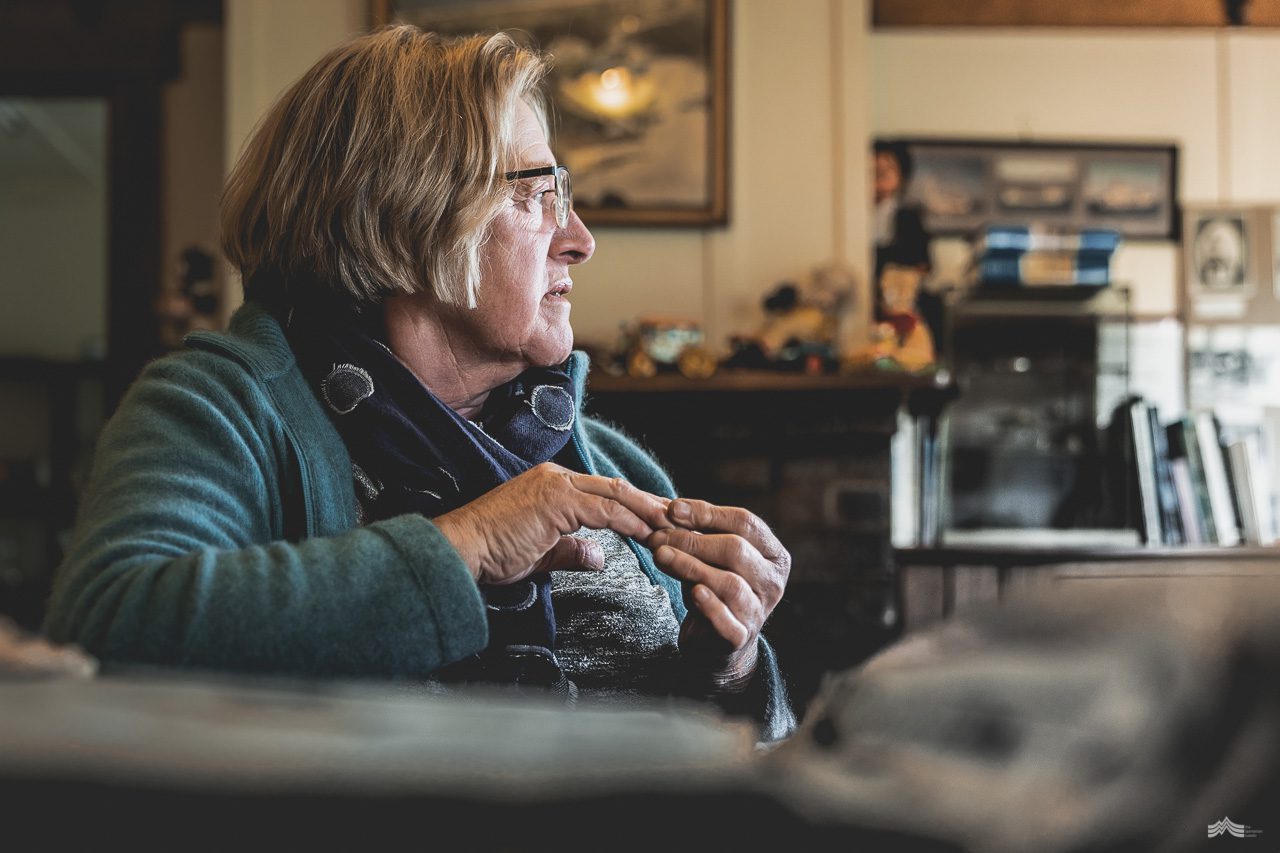
As she grew, Lois’s perch changed to the tall timber ladder that still leans against the shelving behind the front counter. “I grew up in here with mum and Aunty Ruth,” she smiles recalling the formidable force that was her aunt. “Ruth was the classic maiden aunt. Sharp-tongued but with a kind heart.” Having never married, Ruth’s life was her extended family and the store. “She was big on manners and doing things ‘properly’, recalls Lois. “She’d allow newcomers to call her ‘Miss Bowman’, but heaven forbid if they lapsed into ‘Aunty Ruth’ too soon. She wasn’t shy in telling them where the line was.”
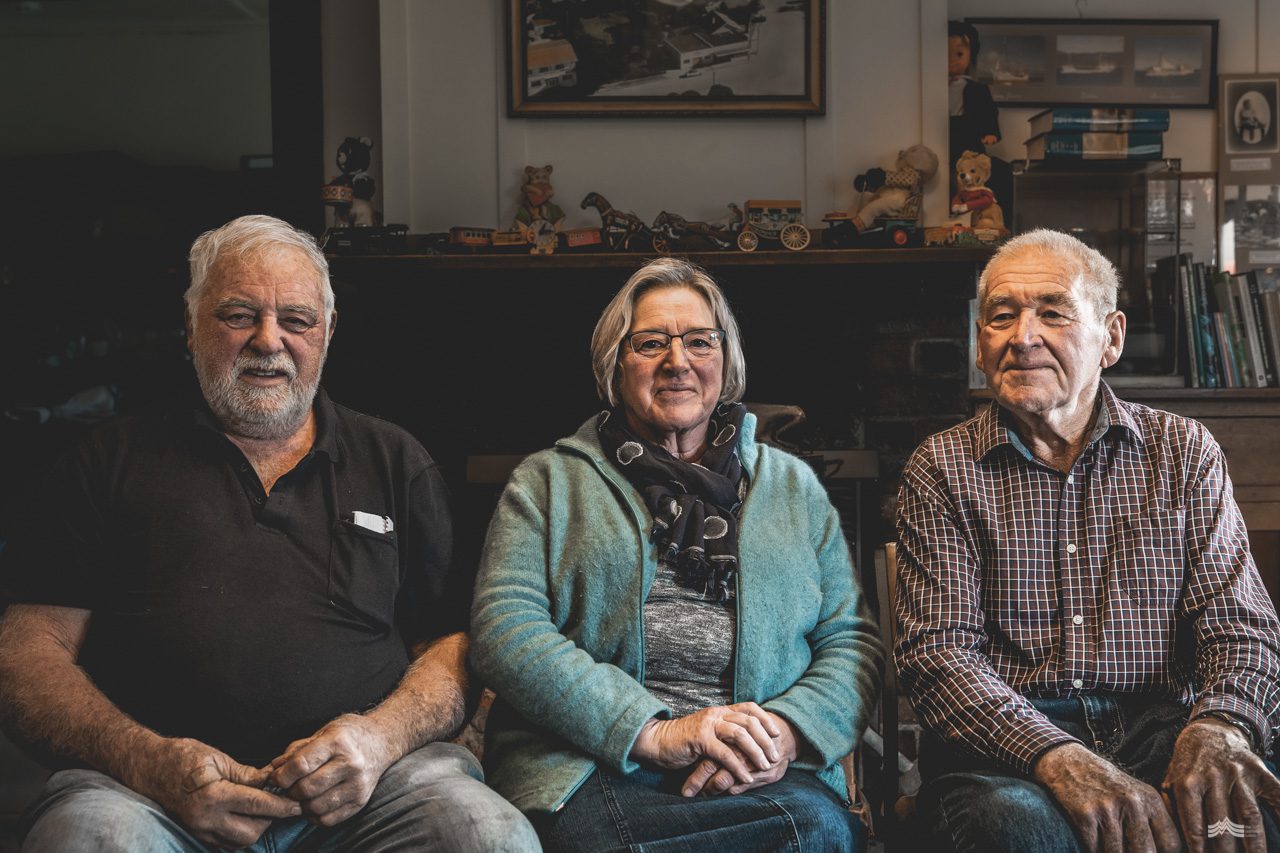
Lois and her four brothers, John, Chris, Geoff and Peter, share a myriad of special Bowman memories. Reminiscing about their parents, a picture is painted of Elvie as a caring, busy and industrious woman. “She’d work ‘til she dropped,” nods Lois. “She had five kids, worked whilst heavily pregnant and was stoic, capable and simply a tower of strength…very family and community orientated…and held fast to her Methodist upbringing. She even found time to write poetry. Mum might not have always agreed with all of dad’s decisions but she stood by him through them all. In hindsight, he perhaps should of listened to her a little more. She was a very good judge of character.”
High and wide, the Granite mountains
Reach to a clear blue sky
A silent sentinel of years gone by.
Any traveller coming homeward
By air, or on the sea,
Will seek those craggy peaks
With shining eye.That’s Flinders Island, Flinders Island
Our island where the Roaring Forties blow.– Excerpt from the poem ‘Flinders Island’ by Elvie Bowman
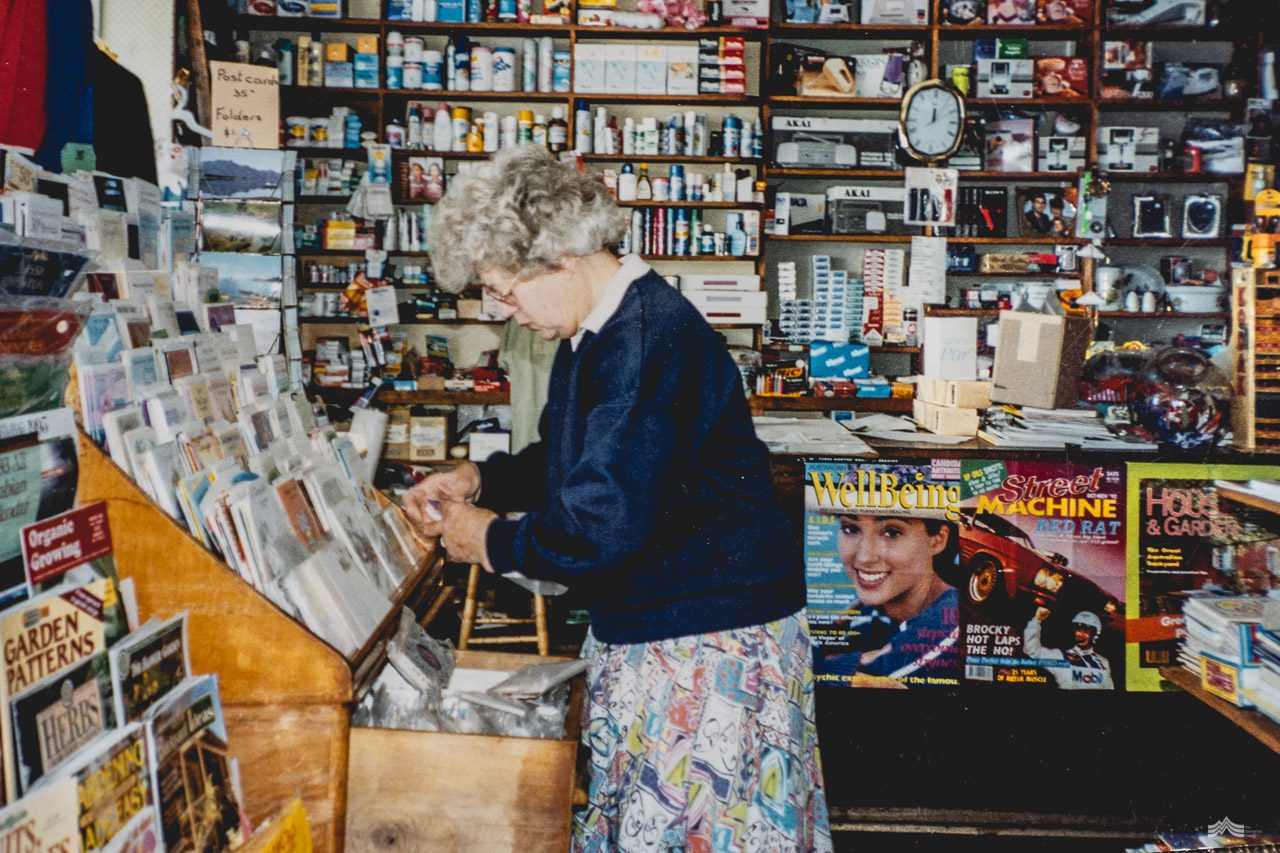
“I think mum really made the business what it is today,” adds Chris, chiming in. “Drapery was her thing. Curtains, clothing and the like. Those were the days when families made everything and nothing was wasted.” Elvie was particularly renowned for her buying trips to Launceston. “Mum was a well-known customer at notable Launceston stores such as DW Murray, Patterson Reid and Bruce, and GW Genders. Her buying trips became legendary,” recounts Lois. “Apparently she’d start in lingerie and work her way down to nuts and bolts. She had a reputation for knowing exactly what she wanted.”
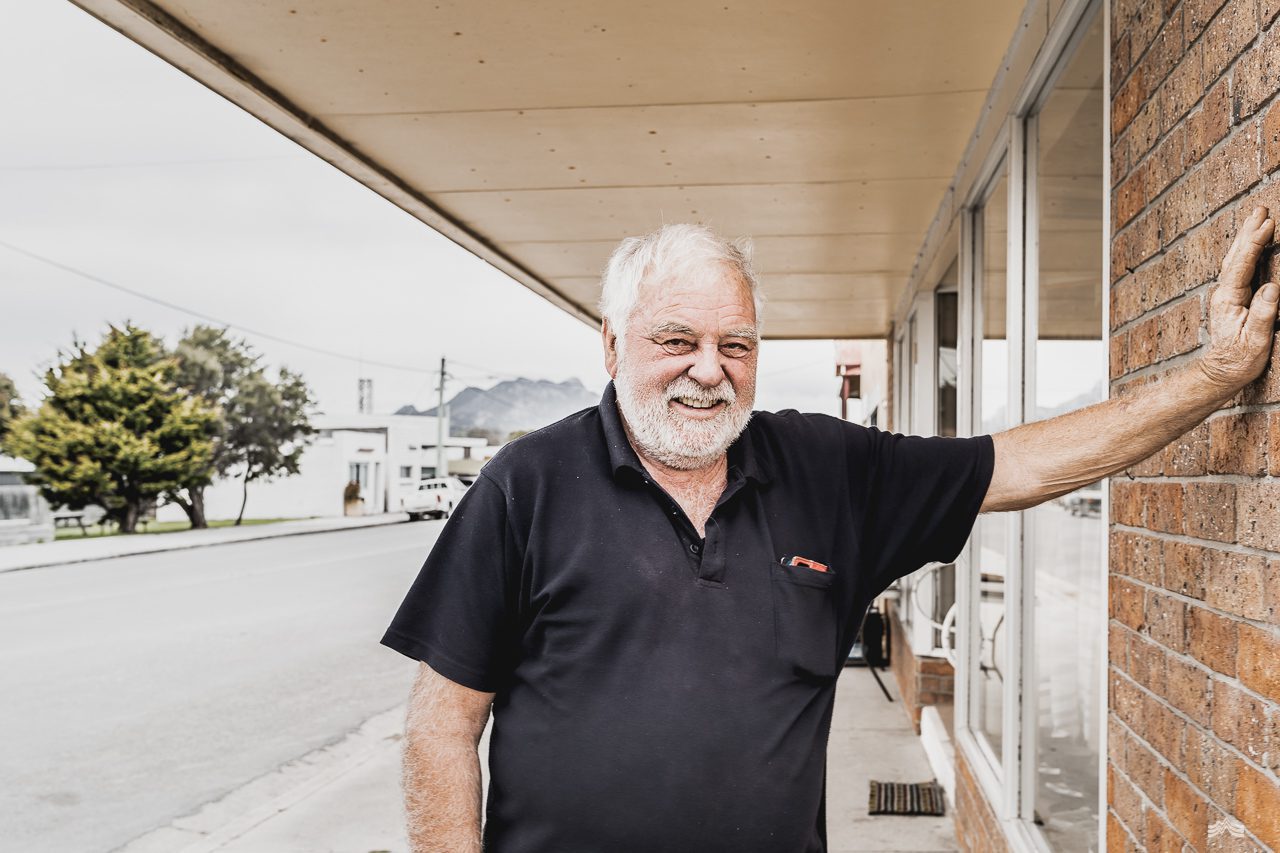
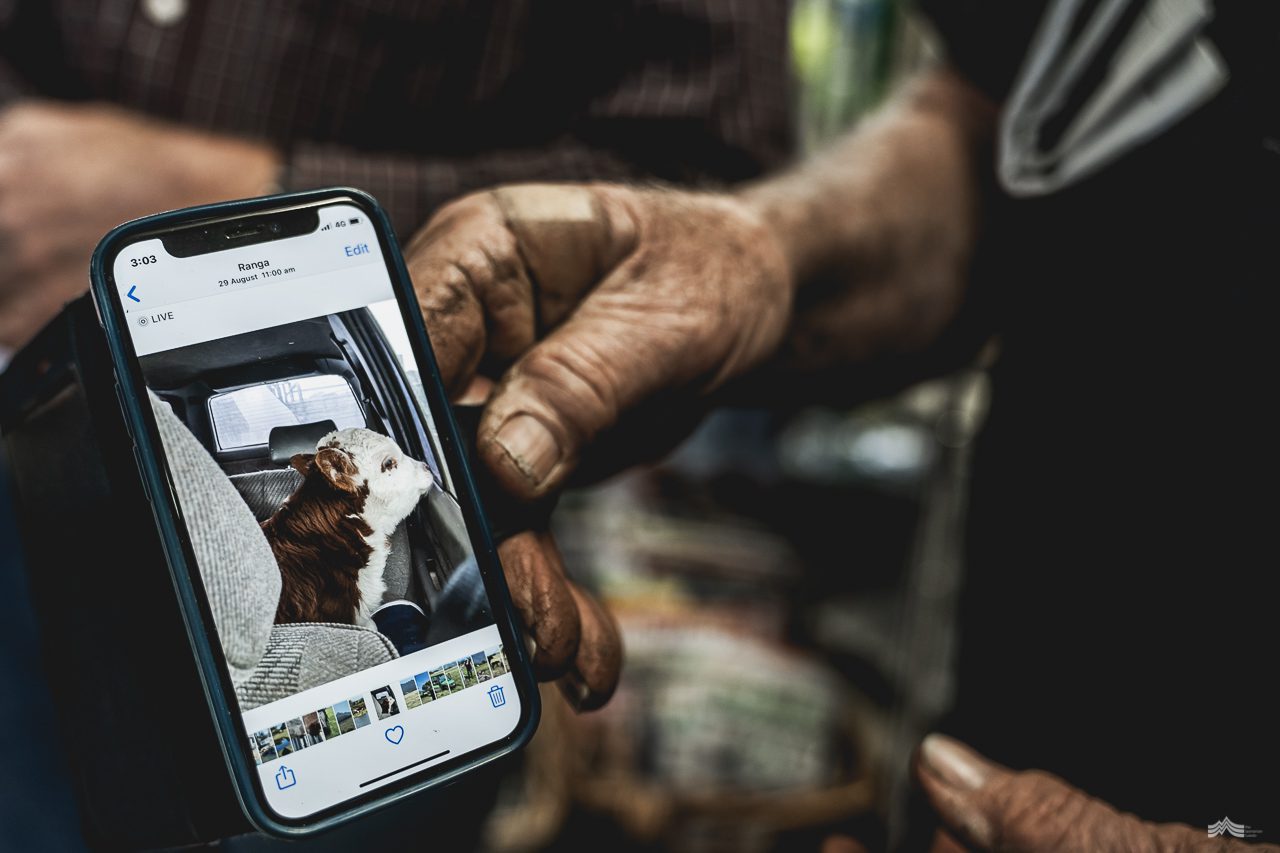
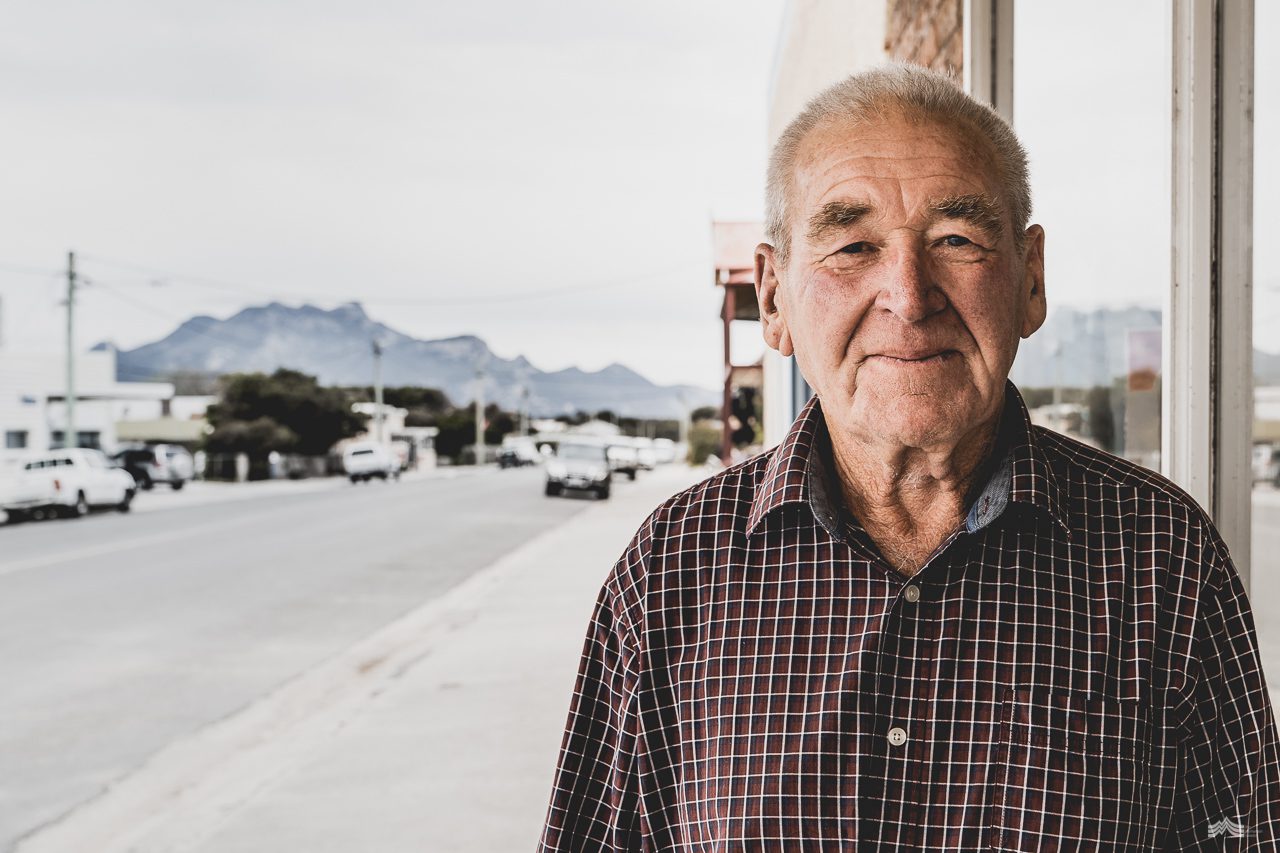
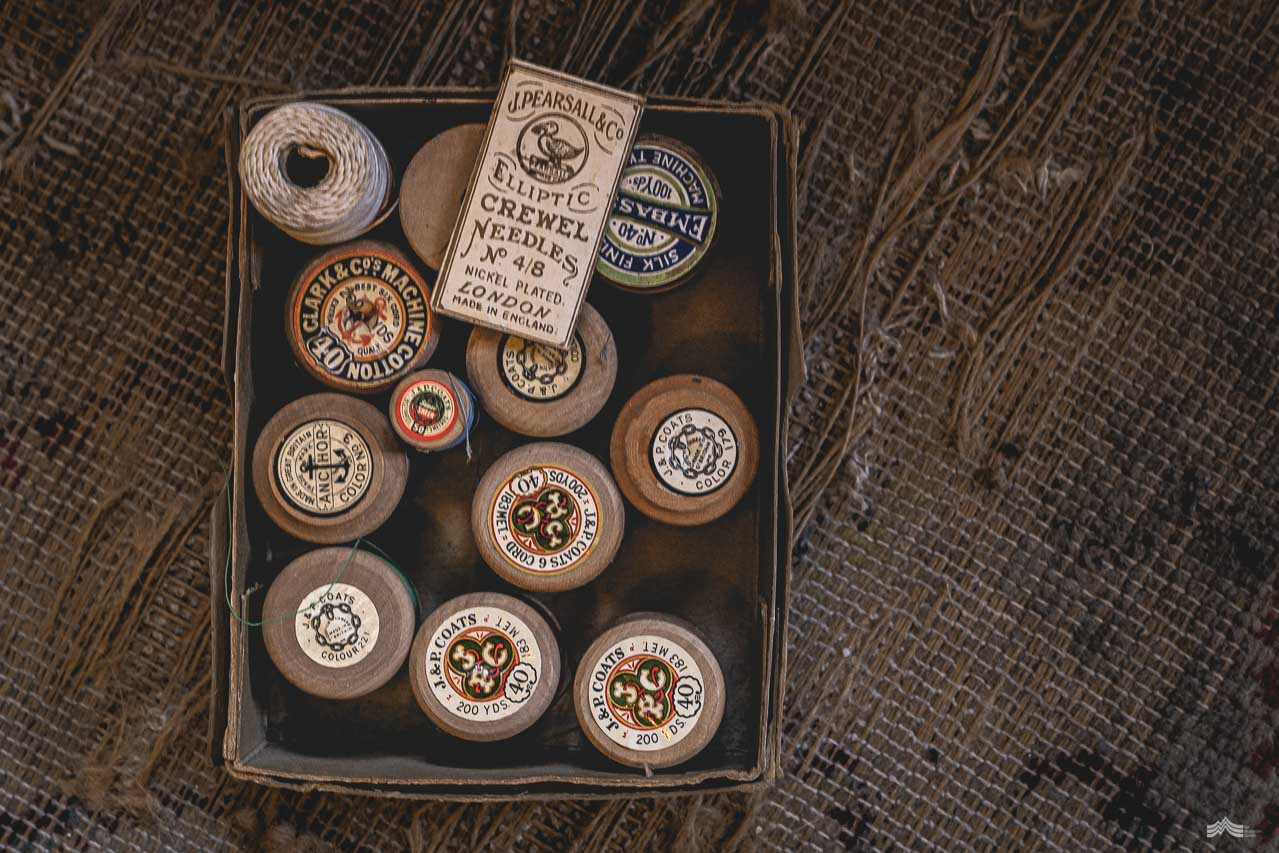
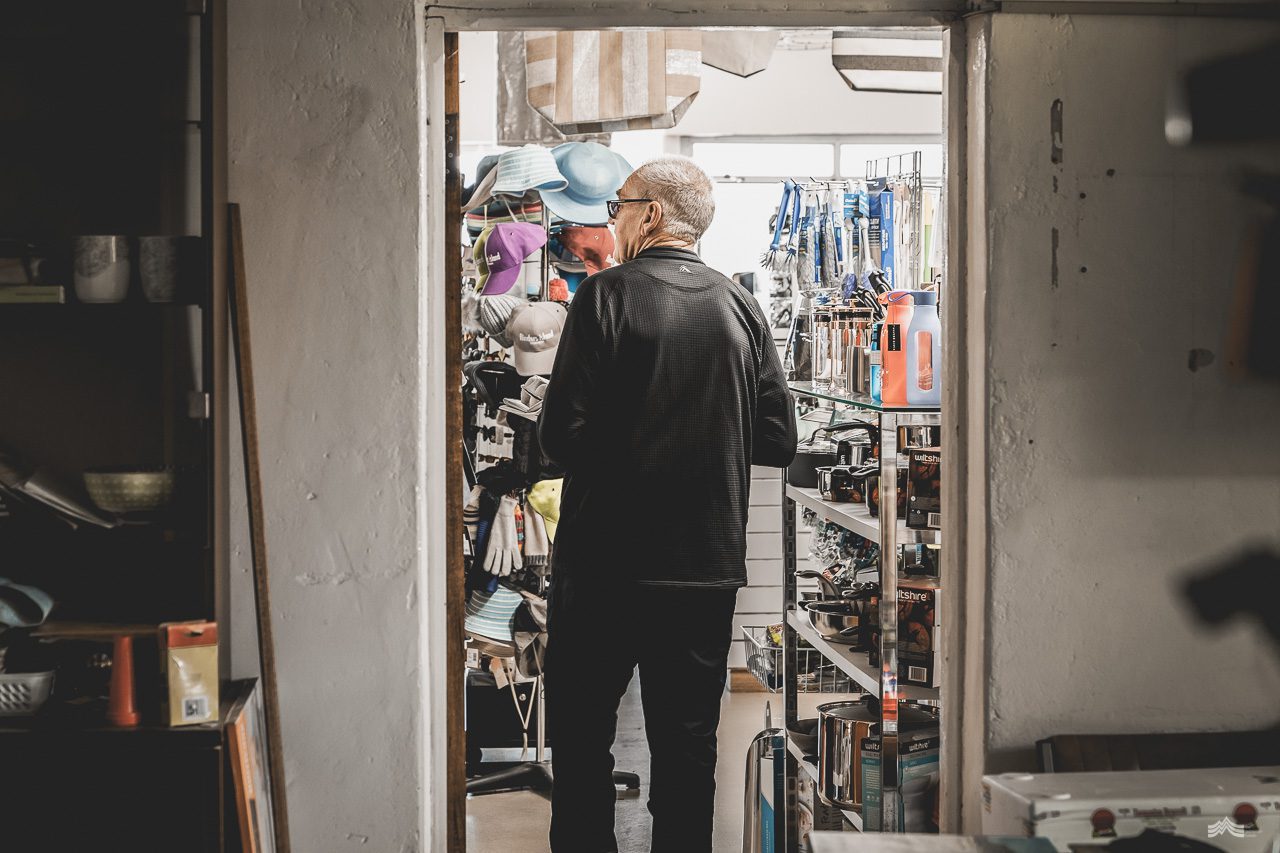
John also tells of the gradual purchasing of small parcels of land and the hard work to subsequently clear and convert them to pasture. Eventually the Bowmans owned substantial property running sheep and cattle. “As things evolved, we all agreed on the division of the land between us,” John explains. “It’s always been about family, something that dad instilled in us. He was very hardworking, not one to rock the boat. He’d make the tough and sometimes risky business decisions and often put his money on the line for the greater good of the island. He was involved in the creation of an airline for the island and also the shipping side of things. But he never bought things unless he had the money.”
“Over the years, the various arms of the business have propped each other up I guess,” says Chris. “If the sales of wool from the farm were good, it would mean we’d stock the shop shelves a bit more. Mum and Dad never really had a clear plan, but they were good at working hard and embracing opportunities when they arose. I guess you’d say that things just evolved along the way.”
The Bowman family expanded in to transport early on. Chris explains, “In 1925 Dan purchased a T model Ford with flat tray back and it was put to work doing deliveries. Today we have progressed to a 22 wheeler but are still moving general freight and livestock.” He continues, “Pallets and containers have made handling easier and quicker, and we’ve all learnt to drive and repair a wide variety of vehicles; hire cars, trucks, dozers, fork lifts. For the life of the Flinders Island Butter Factory, Bowmans carted the cream from the Trousers Point area to the factory and then the butter to planes and boats.” Countless supplies for building and concreting on the island continue to be arranged, mixed and delivered by Chris and his reliable crew to this very day.
In the fifties and sixties, migrants impacted on the weekly buying too. “Mum knew that many of the women hardly spoke any English,” explains Lois. “Sometimes they’d send family in from the farm with money and a very short list as they had limited ability to write in English. Mum knew they had young kids, so she’d just send them what she thought they would need. She was very practical like that, always quietly helping out.”
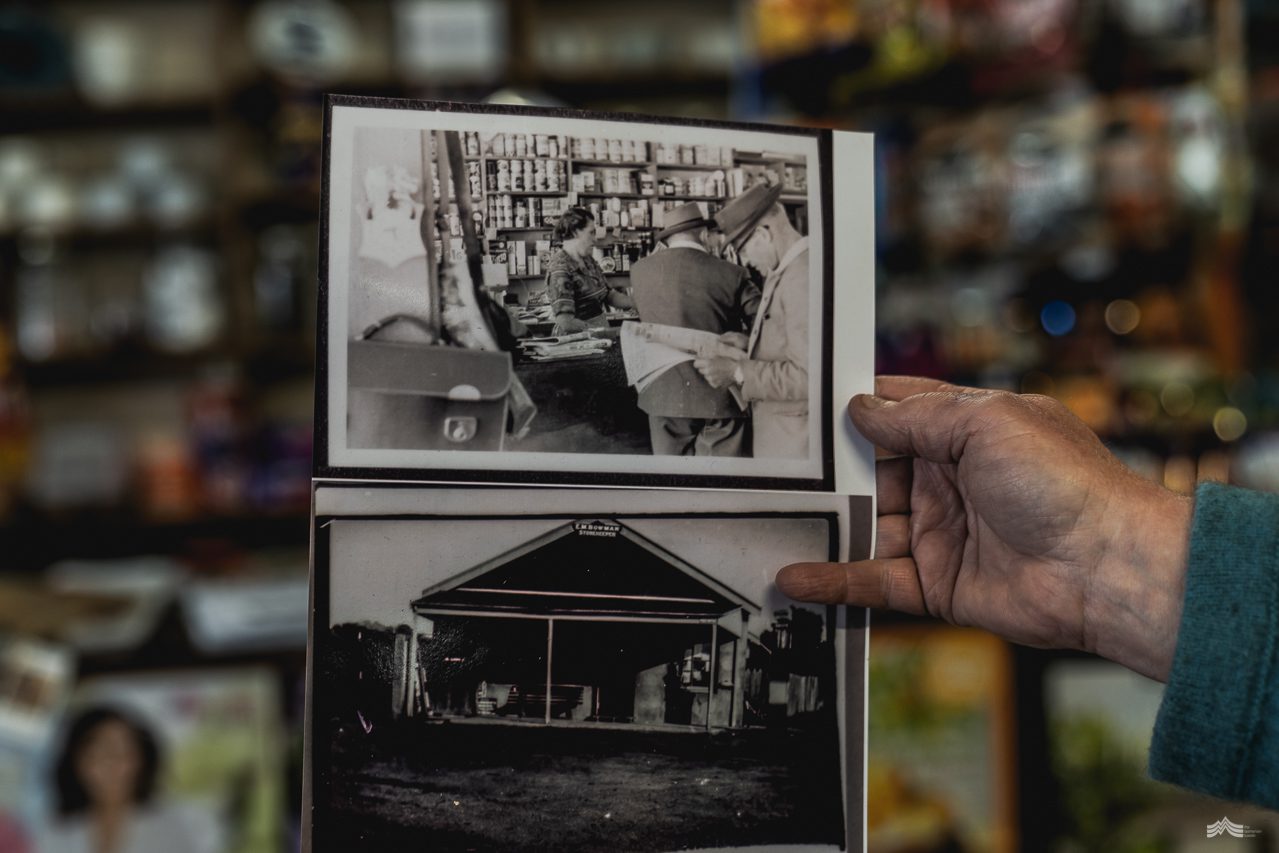
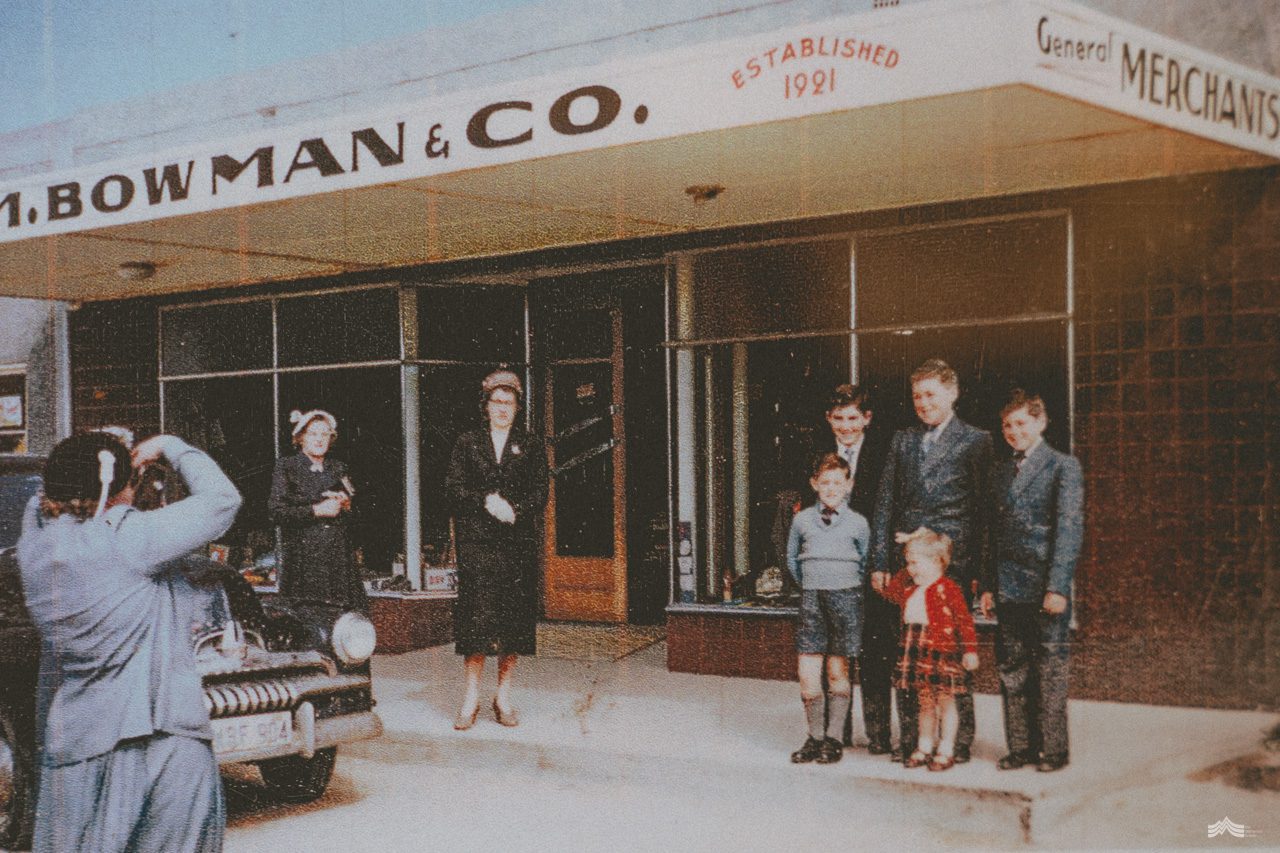
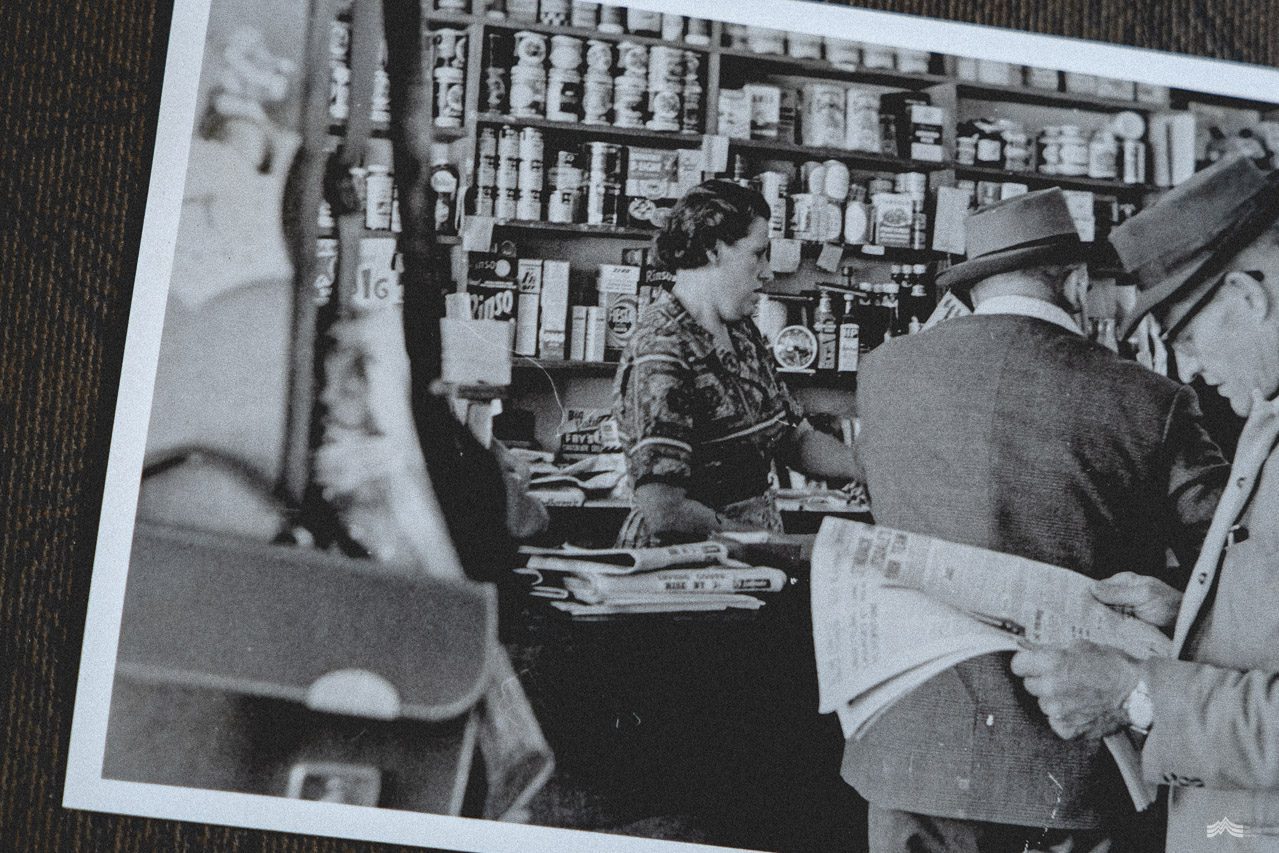
John, Lois and Chris could chat for hours over a cuppa, pouring over the family’s ageing collection of scrapbooks. “In fact, tea’s been a backdrop to many moments over the years,” says Lois. “Morning and afternoon tea was always a ritual in the Bowman kitchen. The teapot was always snug in a cosy, cups and saucers awaiting the men when they came in from the garage.”
The family recalls the stash of biscuits and rock cakes from the shop with fondness. Lois explains laughing, “Maud kept a stash of biscuits and rock cakes from the shop…we were only ever allowed to have the broken ones of course. I’m sure we could reminisce for hours about those days, especially if Peter was here – he lives and farms on Flinders too. Our other brother Geoff lives on Vancouver Island and it’s great when we all get together.”
Bowman’s was, and still is, a veritable treasure trove. Its classic country store charm hails from its walls lined with everything you can imagine. Timber shelving is groaning with clothing, books, linen, boots, electrical items, underwear, hardware…you name it. There’s a strange kind of comfort in the burgeoning stash that greets you, drawing you in and inviting you to relax and fossick around. You never know what you might find.
Groceries were a mainstay at Bowman’s for decades. Crates, tea chests, sacks and boxes were constantly hauled into the store room. It wasn’t until Walker’s opened the supermarket across the road that Bowman’s were pleased to see the back of the heavy lifting. “Mum was keen to replace the tins and packets with more linen, clothes and homewares,” remembers Lois. “It’s worked very well with Bowman’s and Walker’s; we’ve been able to complement each other for many years.”
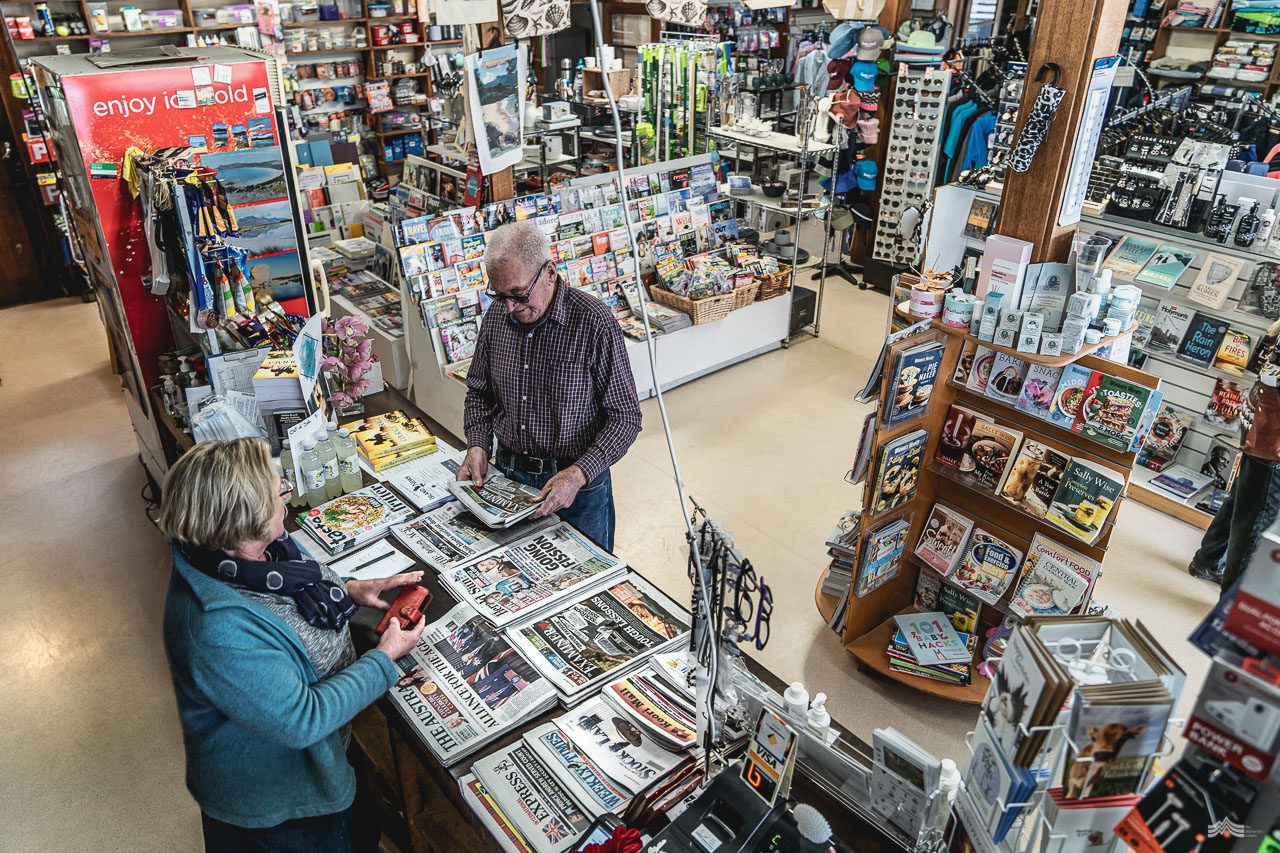
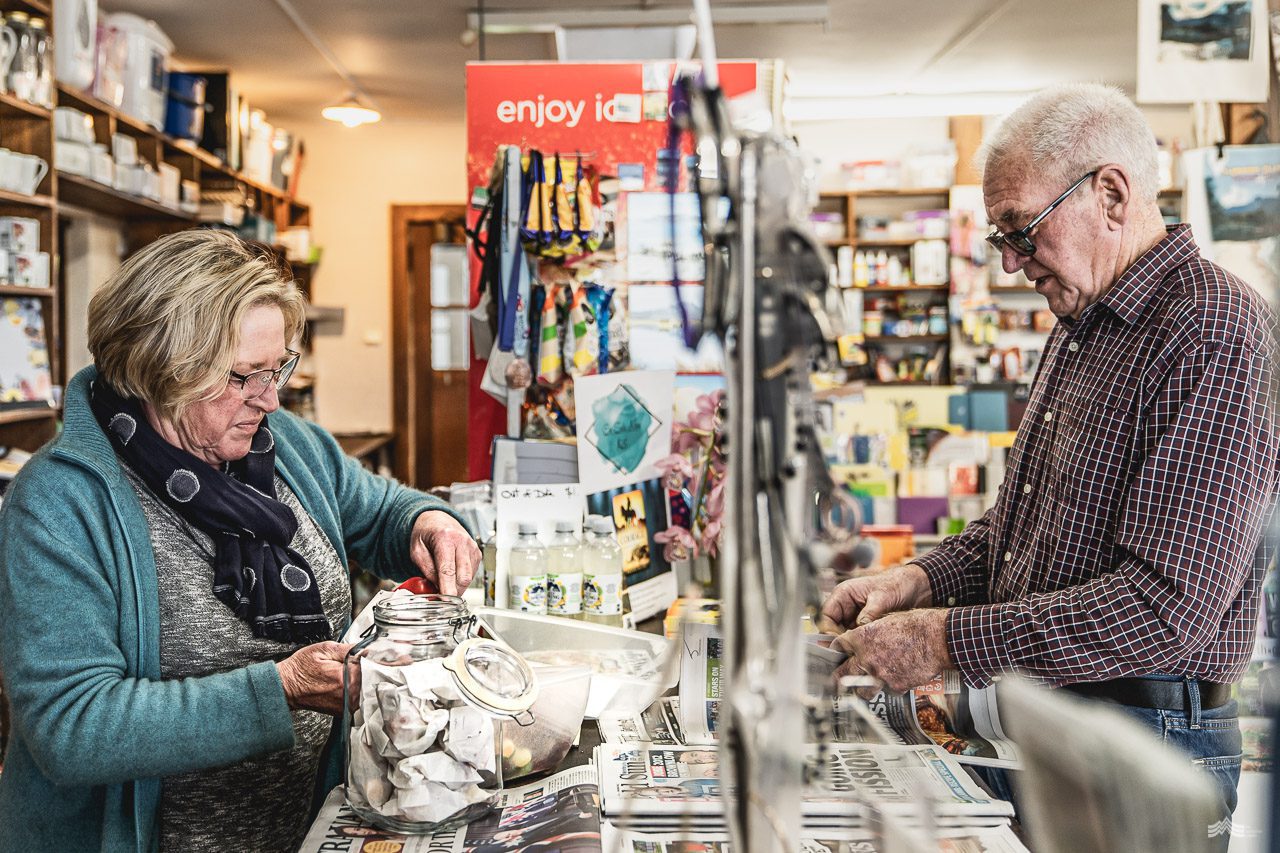
The glorious old counter could be straight from a movie set. Spread wide with a selection of newspapers, it extends an unwritten invitation to linger and chat. Undoubtedly it’s been witness to countless conversations each and every day over the past 100 years. As Lois so rightly points out, “One of the most important traits for a storekeeper is the ability to listen.”
“There’s a lot I’ve learnt along the way,” nods Lois with a wry grin. “Patience definitely, flexibility, to be friendly and to have a sense of humour. Whilst there’s a lot of organising and planning, it’s about people at the end of the day. Whilst 50 years ago people would dress in their second best clothes to do their shopping on a Friday, now locals pop in straight off the farm. What hasn’t changed though is that everyone loves a chat and to connect. Running a general store isn’t always an economic choice, it’s more a way of life.”
Even today, you only have to be in the shop five minutes before someone will wander in and say, “I don’t suppose you have a …” It doesn’t matter how that sentence ends, it’s bound to be there somewhere. From toilet seats to pillow cases and from nail files to paintbrushes. One hundred years of knowledge rests on these shelves. One hundred years of understanding how the local community ticks.
“There’s been change, certainly, but Bowman’s wouldn’t be what it is today without it,” says Lois. “Whether it be accounting methods or buying styles, things have come a long way in the past 100 years.” Laughing she adds, “Although the one thing that never changes is men’s flannelette pyjamas. They just stay exactly the same!”
Lois is a whirlwind of energy. Just like her parents and grandparents before her, Lois’s ties run thick through the community. Whether it be the P&F, the show society, the local council or the community choir, Lois has given her time. “It’s just what you do here I guess,” she shrugs. “The store serves as a convenient point for all sorts of things. If someone’s collecting for a cause or running a raffle we help out with those kinds of things. We’re a point of tourist information, a place to lodge your show entries, find the local news and place a notice in the window. Just about anything goes.”
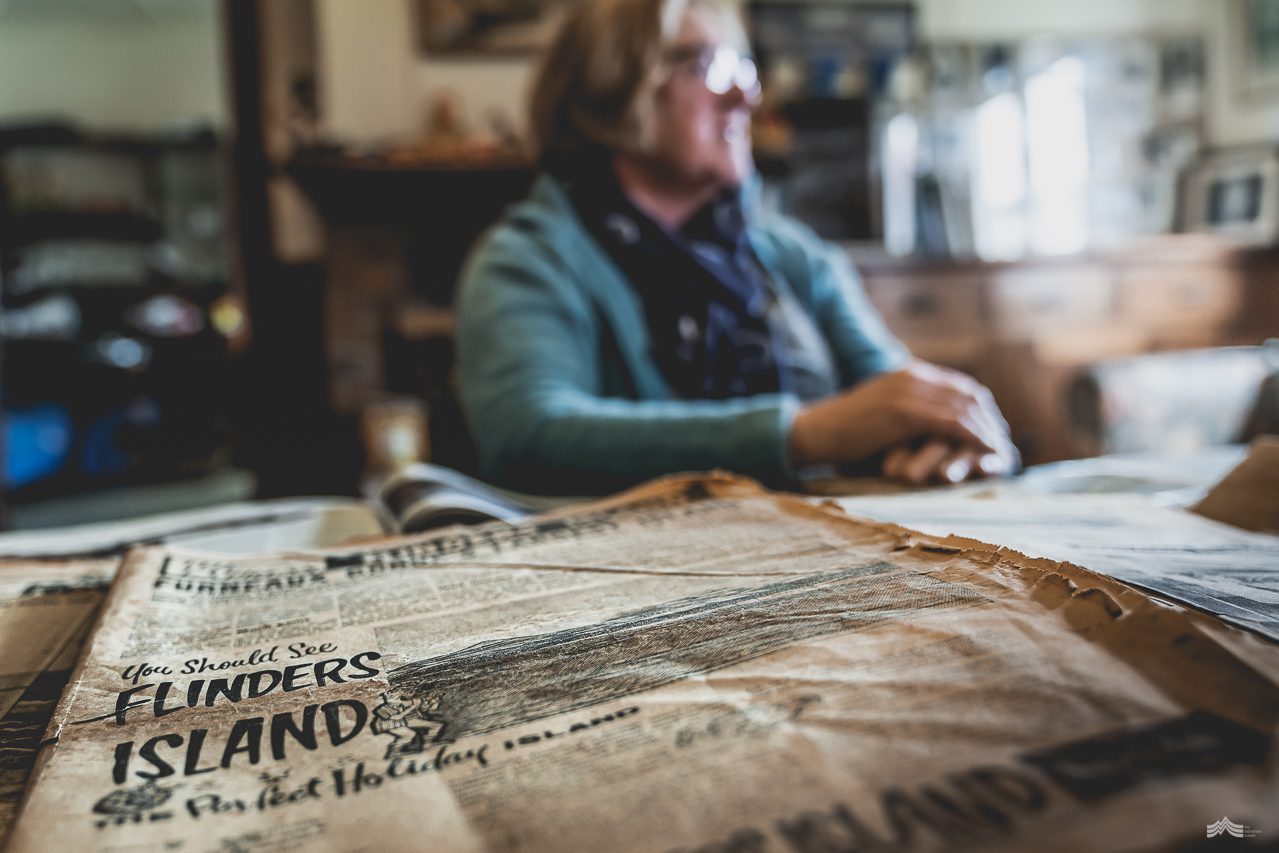
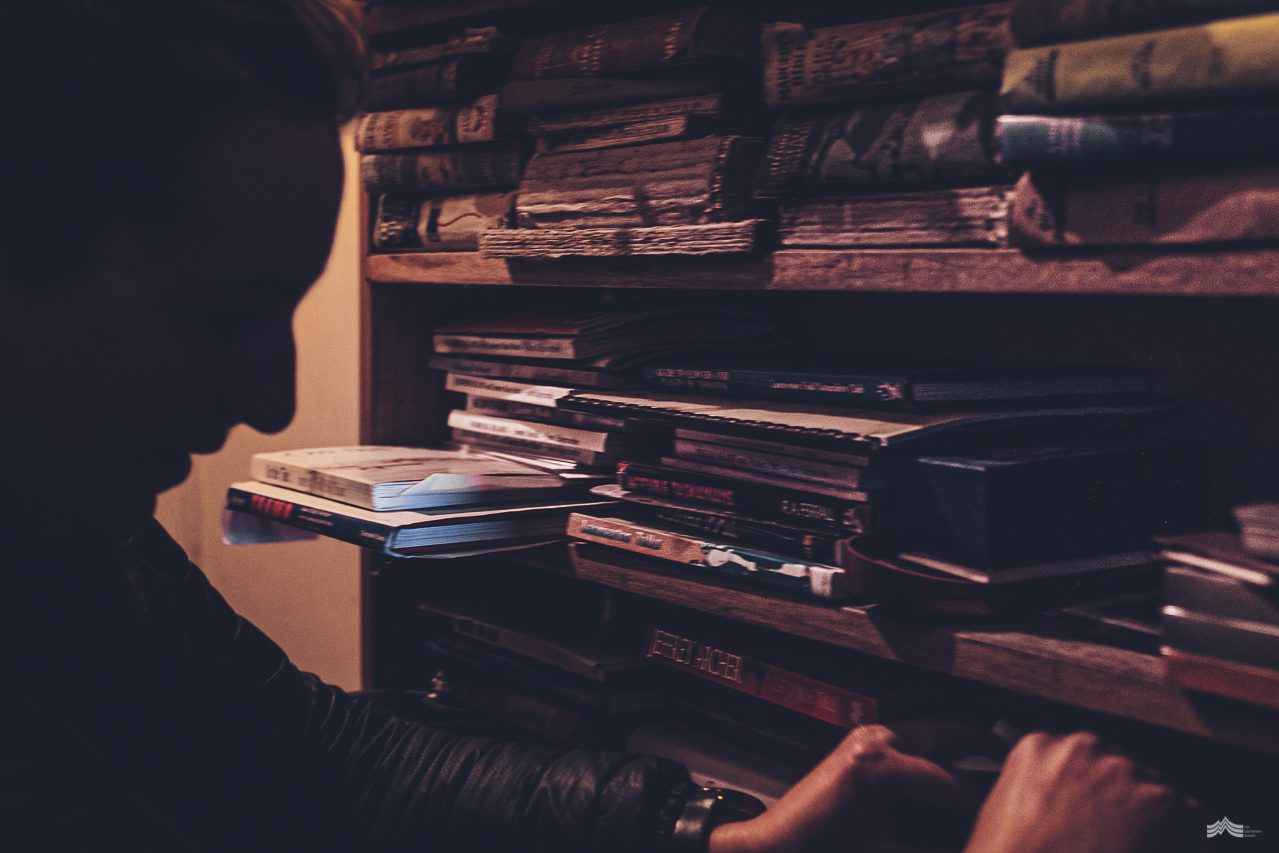
The unexpected death of Aunty Ruth in 1995 sent shockwaves through the community. Her life was woven tightly into the fabric of Whitemark and her presence sorely missed. “It was also a catalyst for a huge clean out of the house,” explains Lois. “There were over 70 years of belongings stashed away in there. Everything from old sewing patterns to draws full of photos. It was then that I decided we need to do something with it all and make sure it was protected for the future.”
“One really interesting find was a collection of beautiful Aboriginal shell necklaces. They were in a tin right in the back of a cupboard,” explains Lois. “They were made by women on Cape Barren Island and swapped for food. We donated them to the museum.”
Lois opened the Bowman History Room in 1996 – the result of a huge clean out of Ruth’s belongings and, at the time, a rich celebration of 75 years of intriguing island history. Fittingly housed at the back of the store in Aunty Ruth’s ‘good room’, the history collection is inextricably linked with the development of Flinders over the course of the last century. Wrapped protectively within the beautifully preserved 1930s architecture, including original timber dado walls, picture rails and solid doors adorned with classically elegant handles, sits a glimpse into a century past.
Old photographs, newspaper clippings and classic items that tell the story of society through the twentieth century through a shopkeeper’s eye. The store’s beautiful old scales that once calculated the community’s cooking staples sit atop a display cabinet brimming with icons of the past. From old jars of medicinal tonics to school ink wells. From boxes of cotton reels to ladies gloves. From tobacco tins to hat boxes. And from doilies to card games. Daniel’s war medals, diaries, maps, letters and personal items from World War I rest quietly in here too.
“I often wonder what they’d think now,” says Lois of her grandparents. “I think they’d be very proud that we’ve continued to grow the business, proud of the strong family that’s grown over the years, and proud of the work ethic and community ties that continue to this day.”
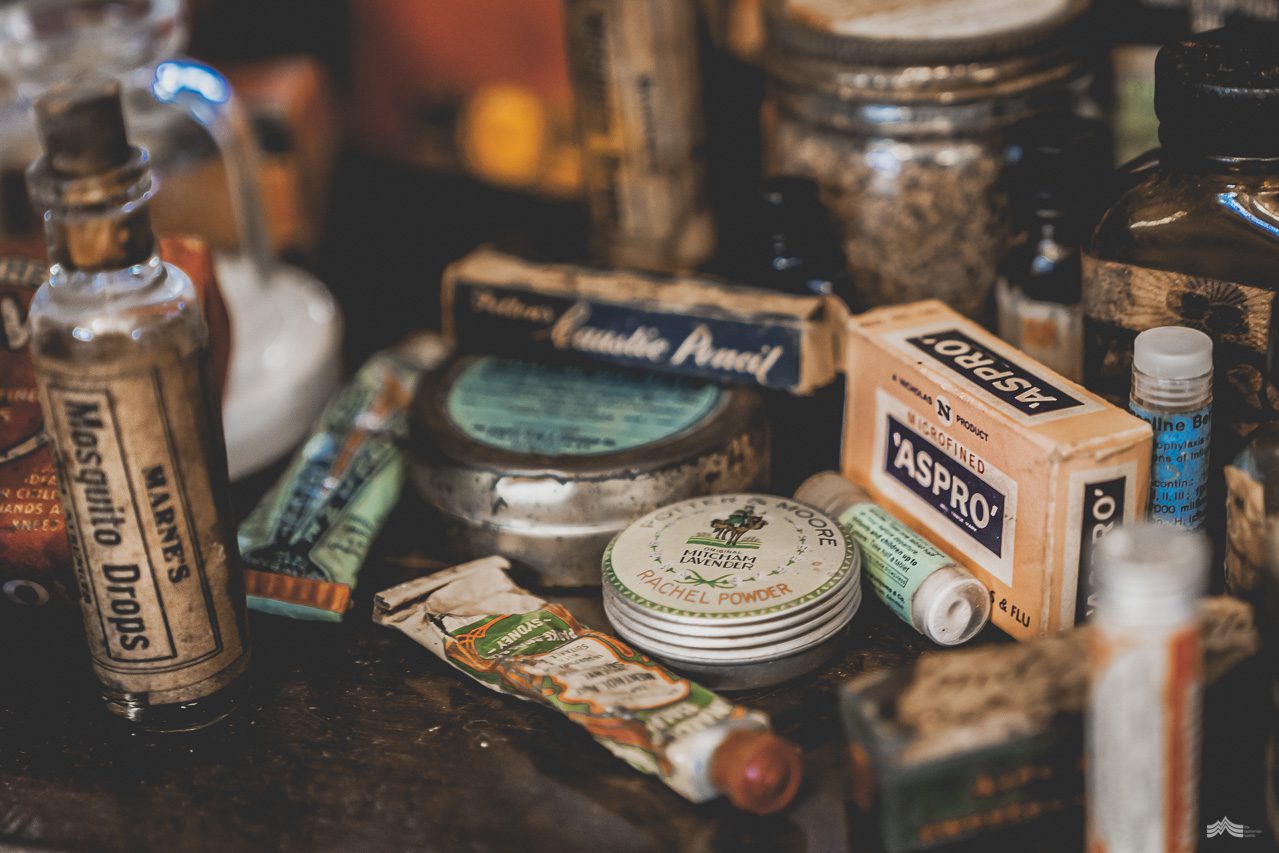
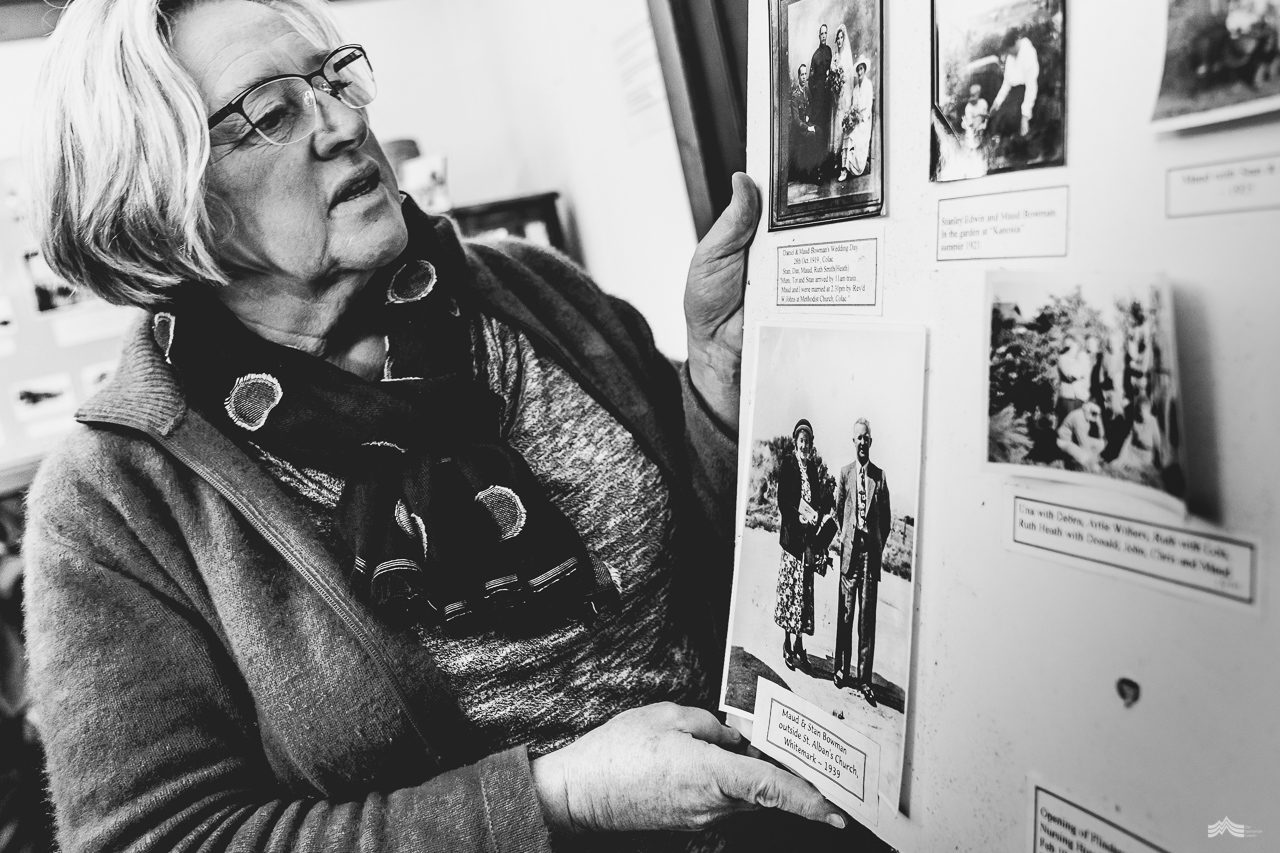
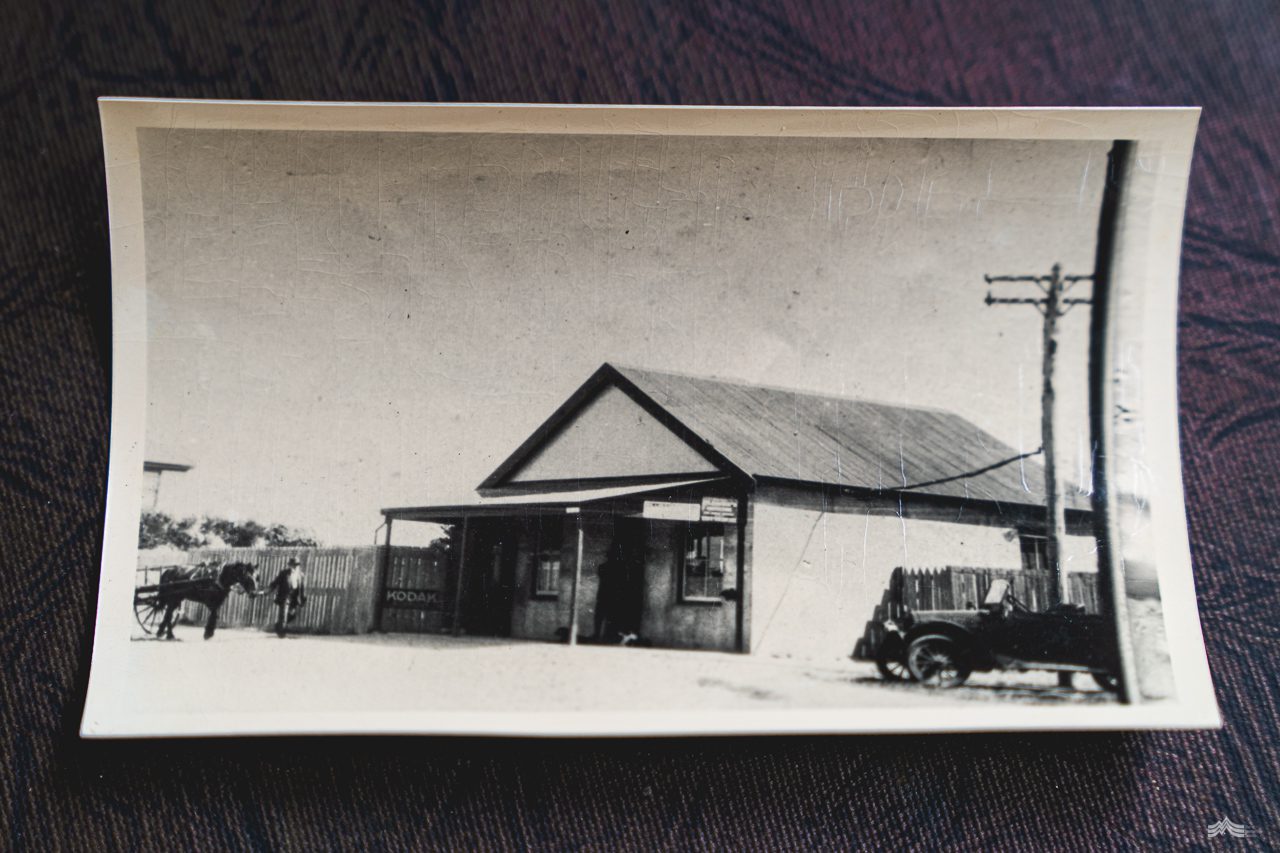
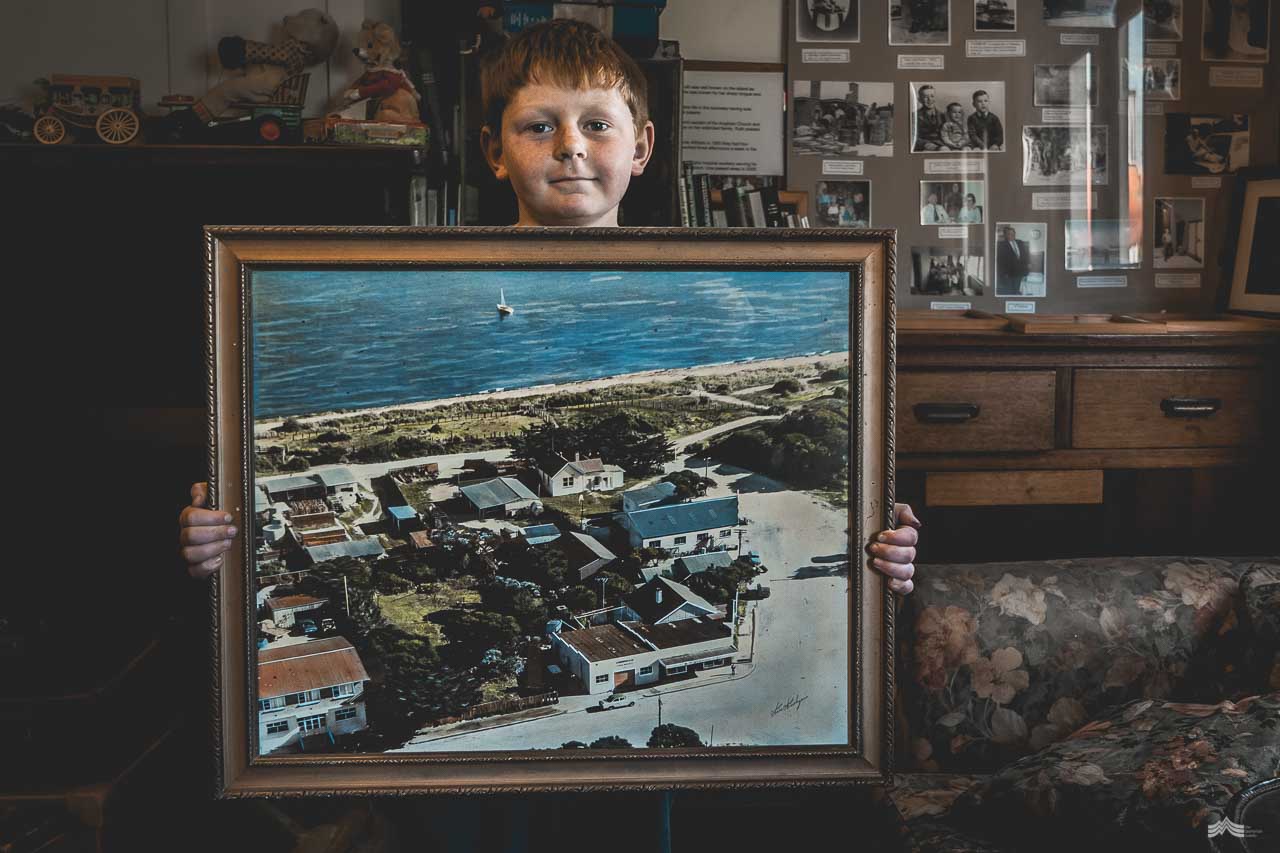
Lois’s daughter Claire represents the next generation of strong Bowman women. “I loved growing up in here,” she openly admits. “But I never thought I’d end up working back in the shop. I was adamant that life had other things in store for me.” Indeed it did, until the pull of island life lured Claire and her young family back to Flinders a few years ago.
“So here I am, loving life back at Bowman’s,” she grins. “Maybe Mum can start to take a step back now. It’s kind of special that every generation makes its mark in here…I often look around at little details and think to myself ‘Aunty Ruth did that.’ I know I’ll never change those things – they’re part of the unique history of the place.”
“I love the fact that my kids are doing the very same things that I did growing up. Saying hello to everyone that comes in, playing hide and seek, and sprawling their colouring-in books across gran’s desk. There’s often a stool behind the counter here for the kids to stand on so they can help out.”
Grab a bag of mixed lollies when you stop by Bowman’s. Yes, they still do them.
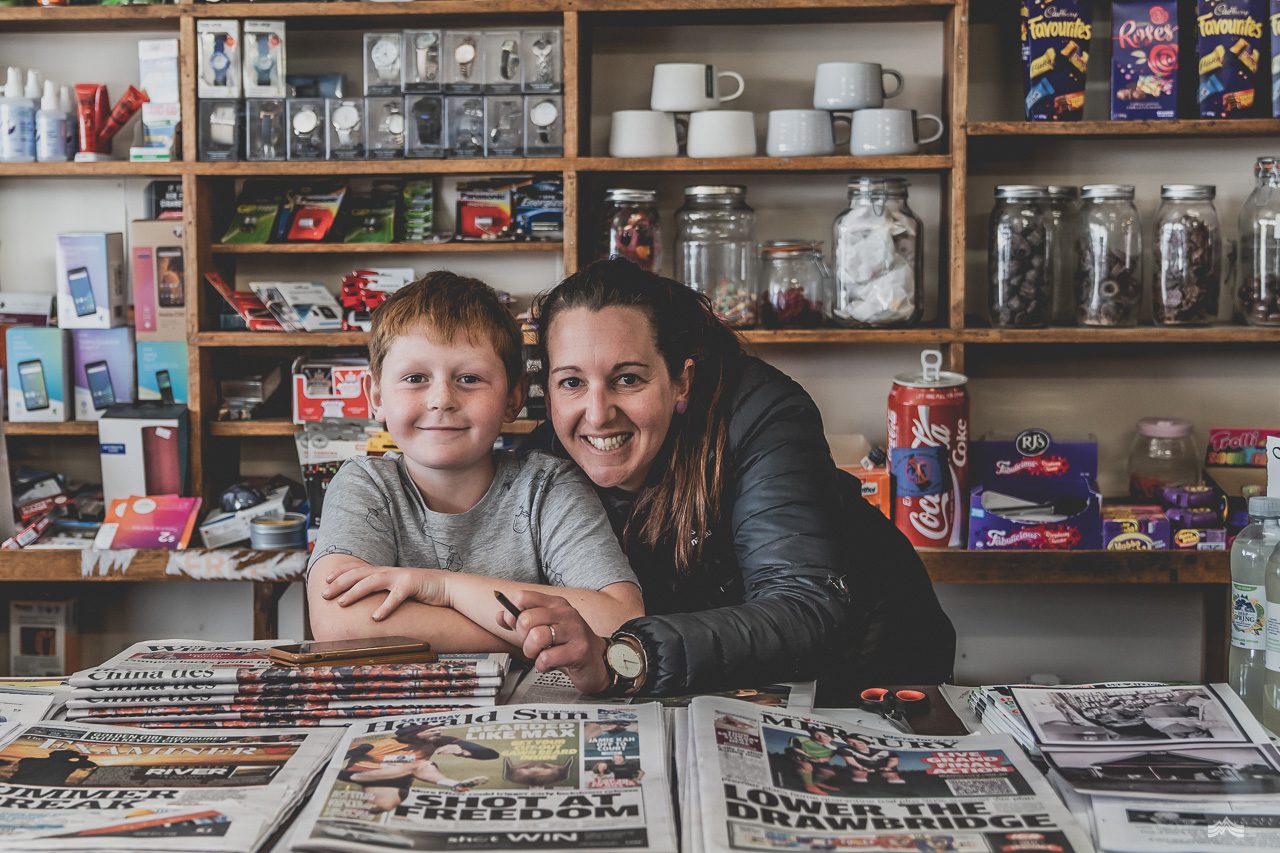
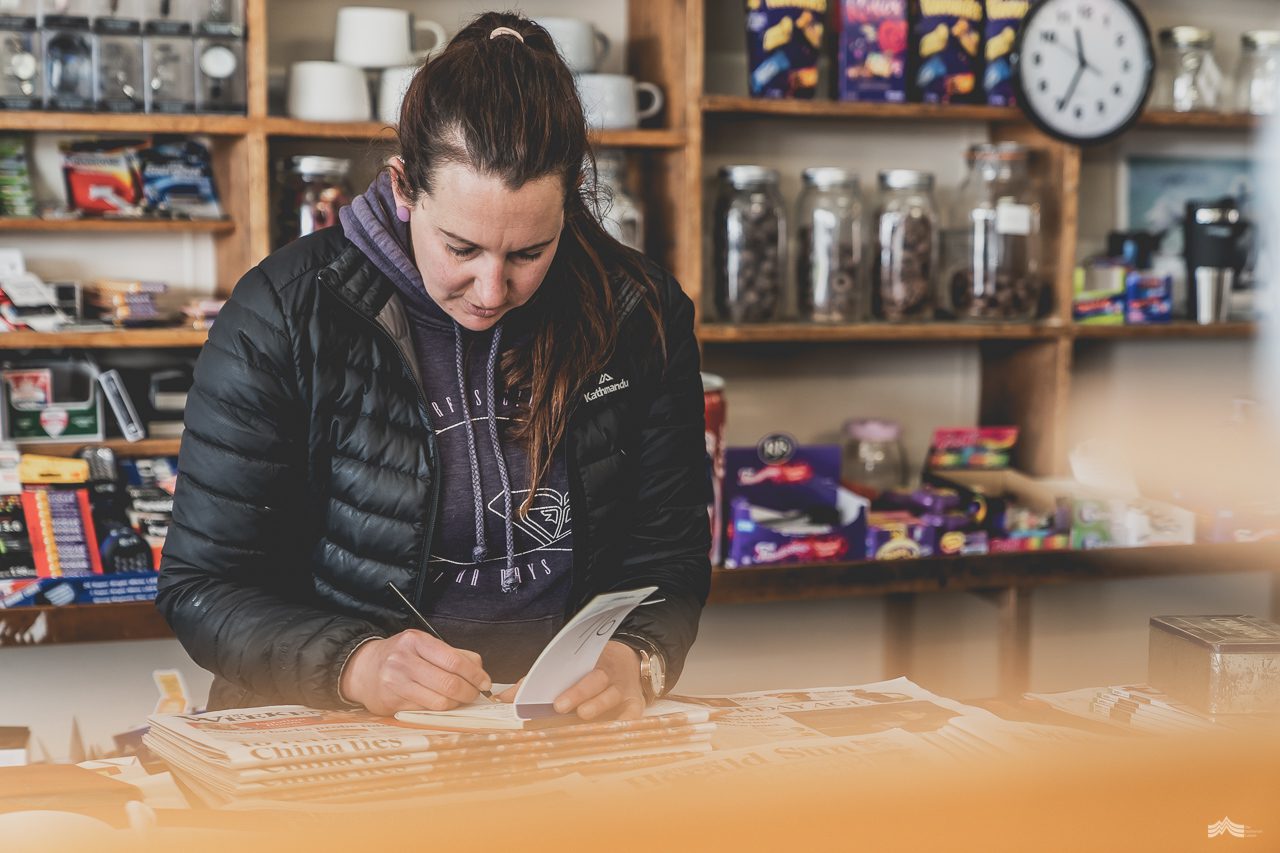
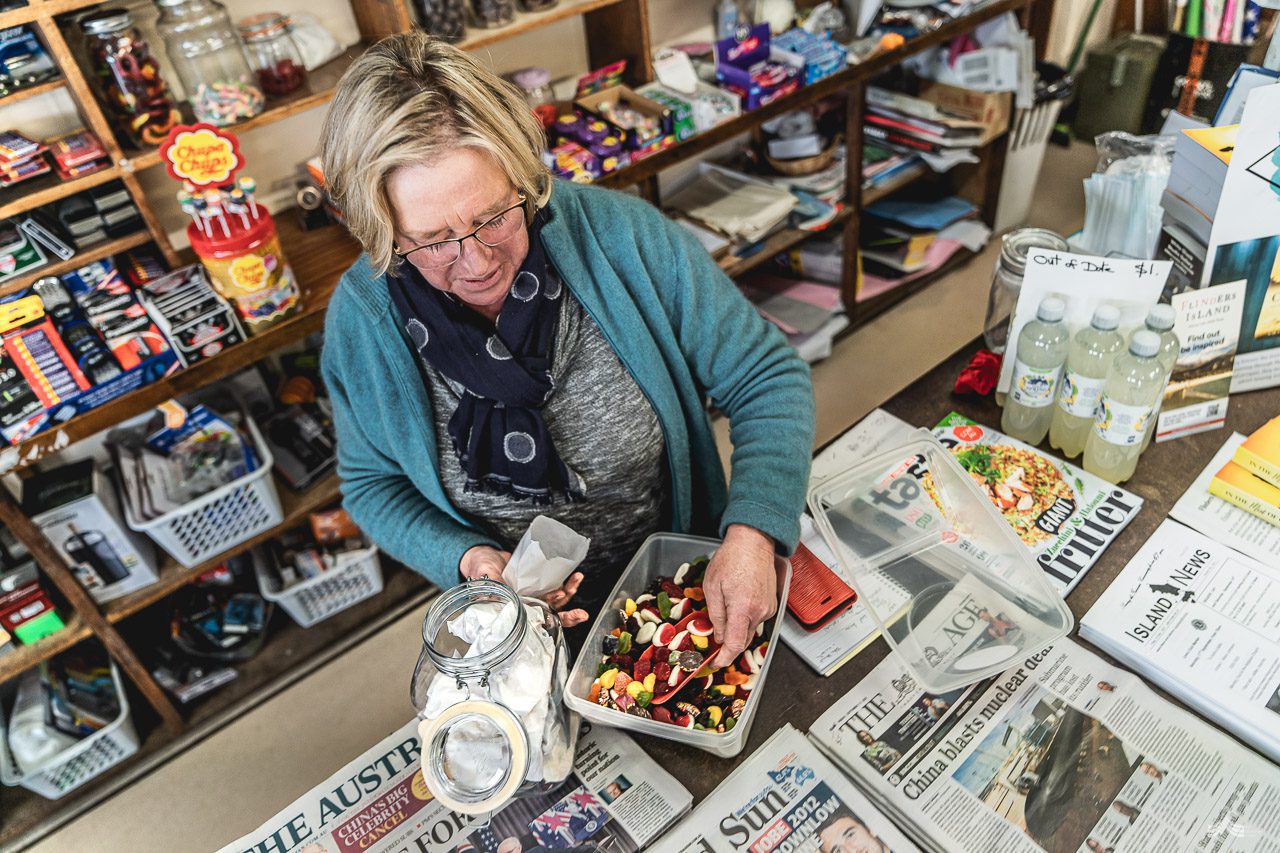
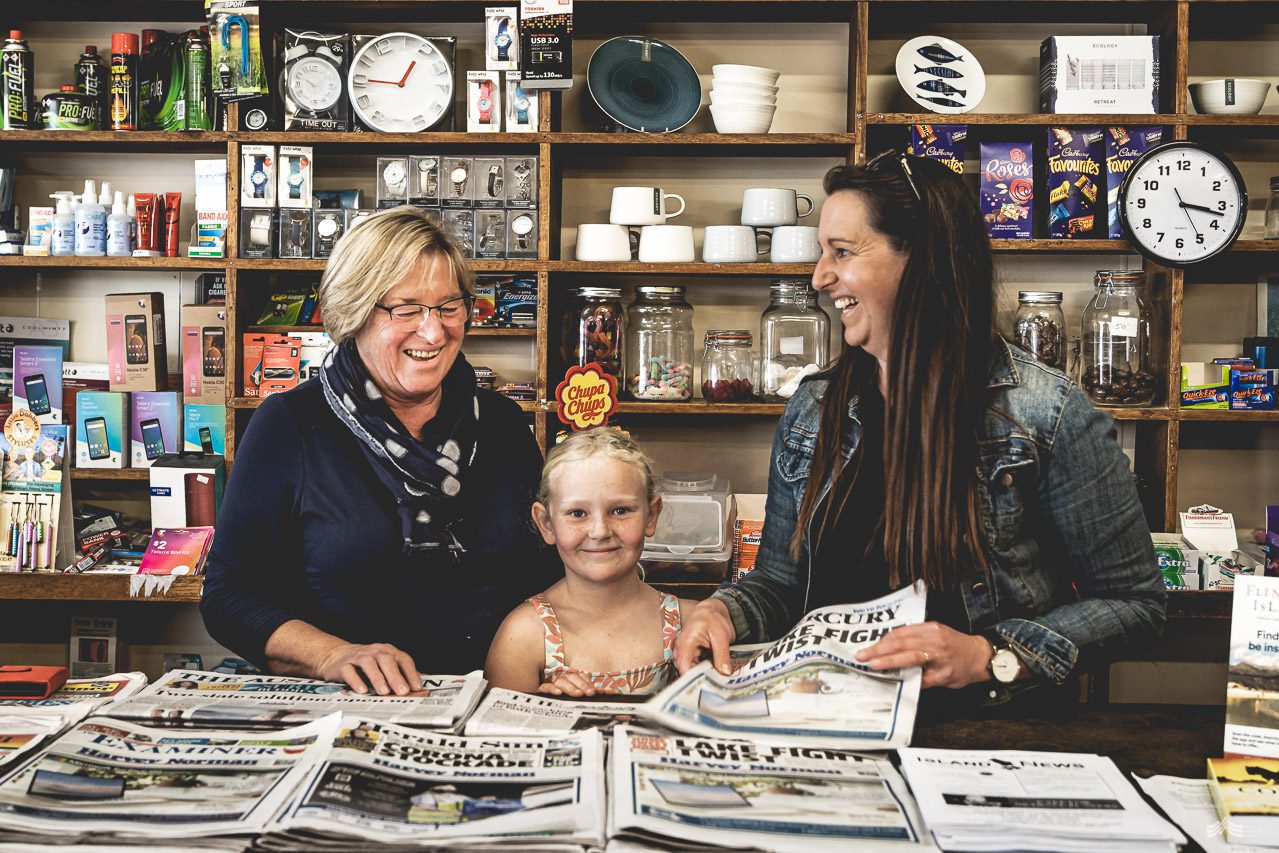
Bowman’s General Store is located in the ‘capital’ of Flinders Island, Whitemark.
Opening hours are Monday to Friday 9am-4pm, Saturday 9am-12noon.
